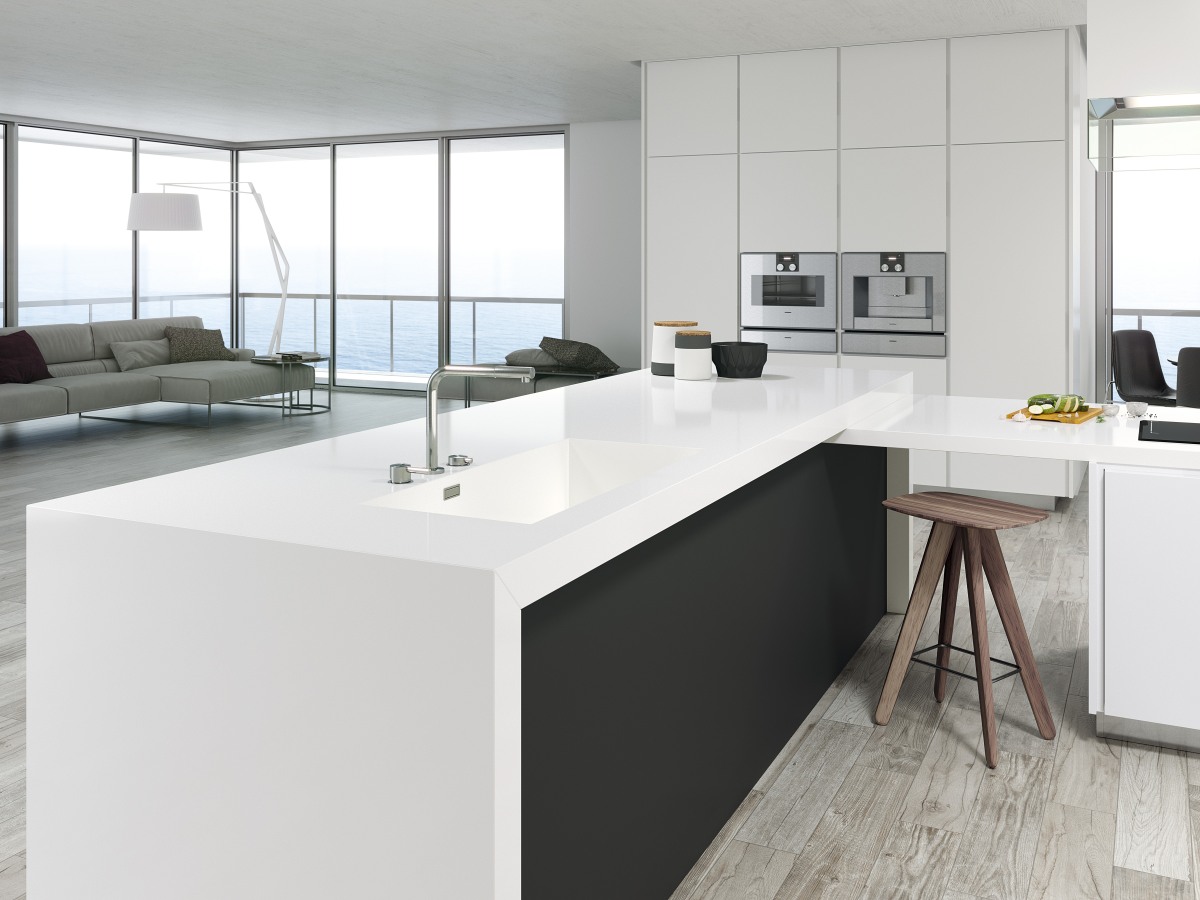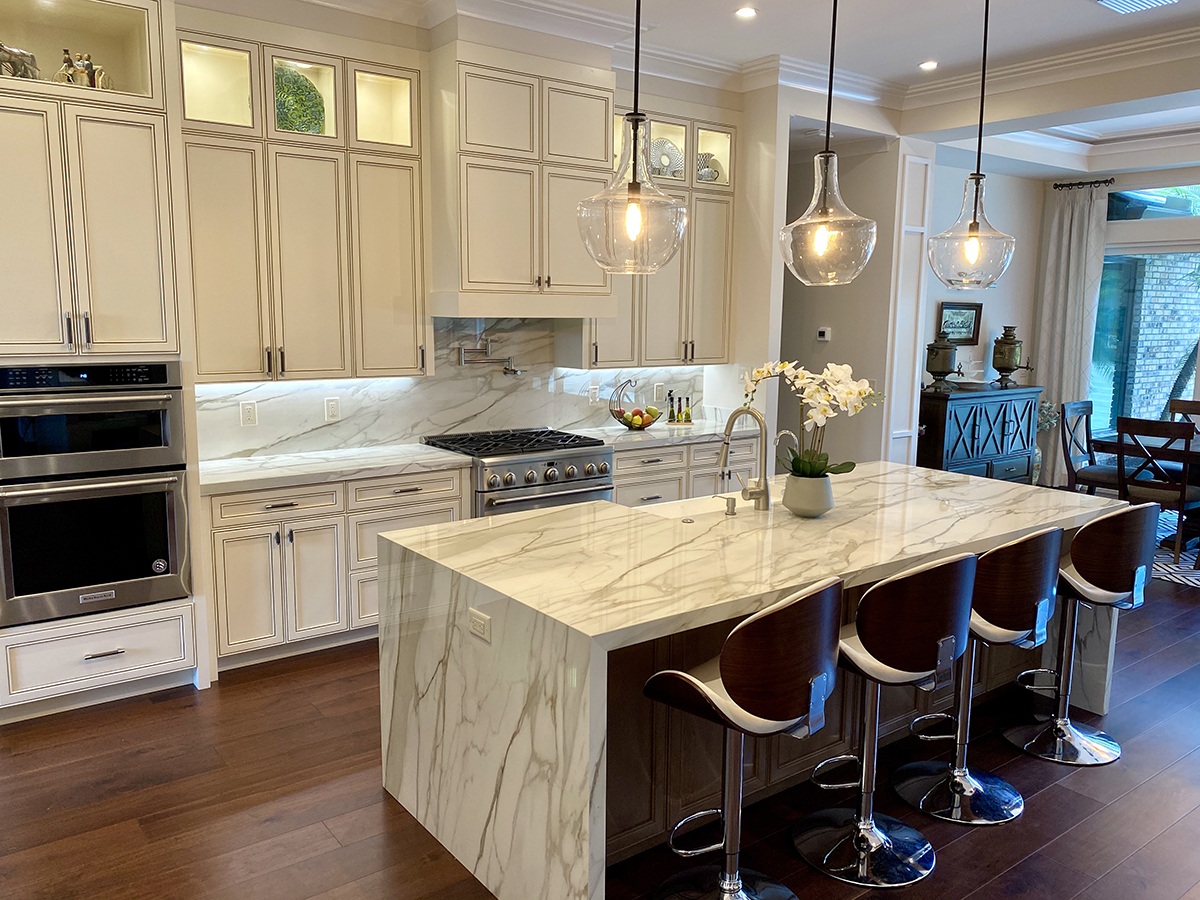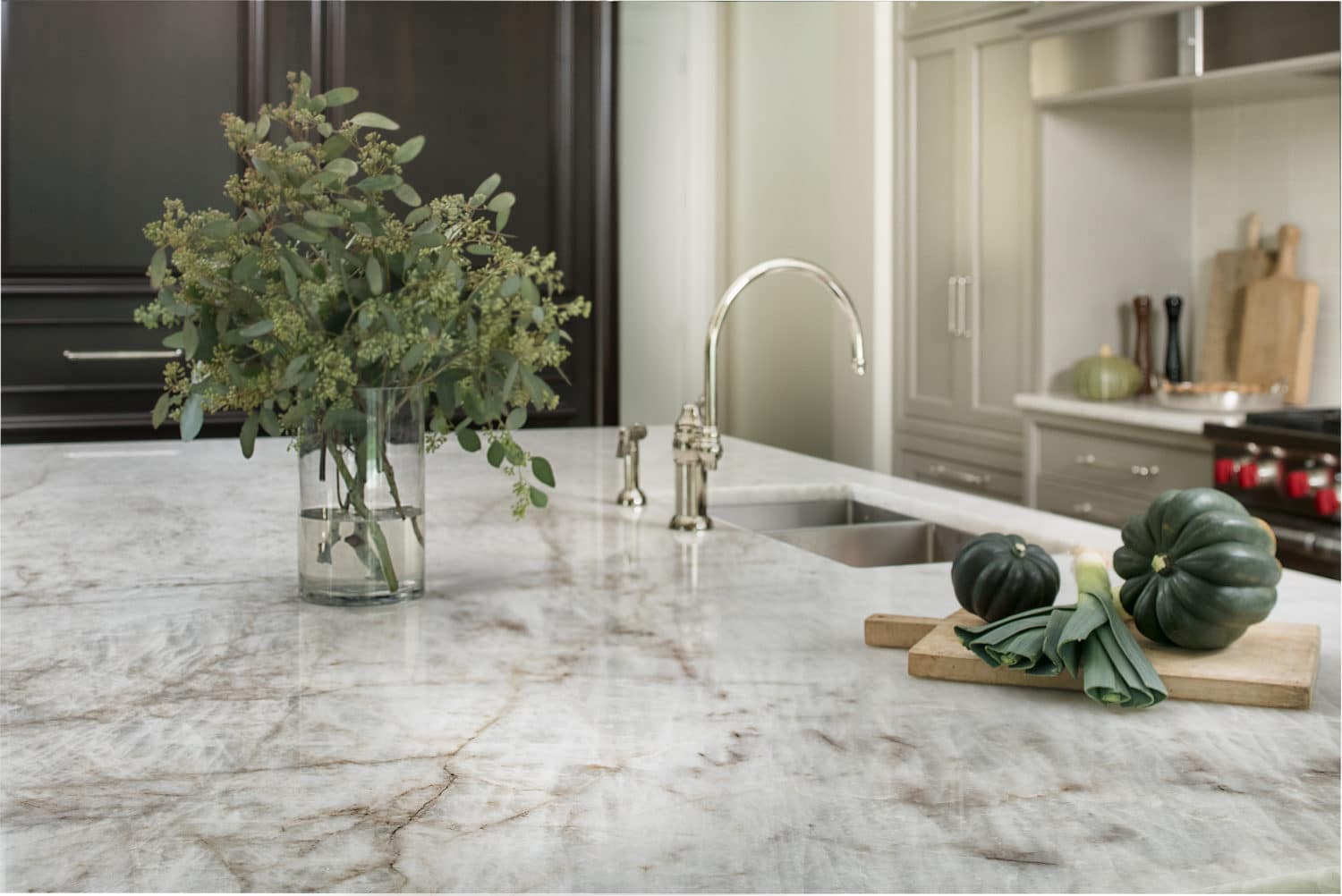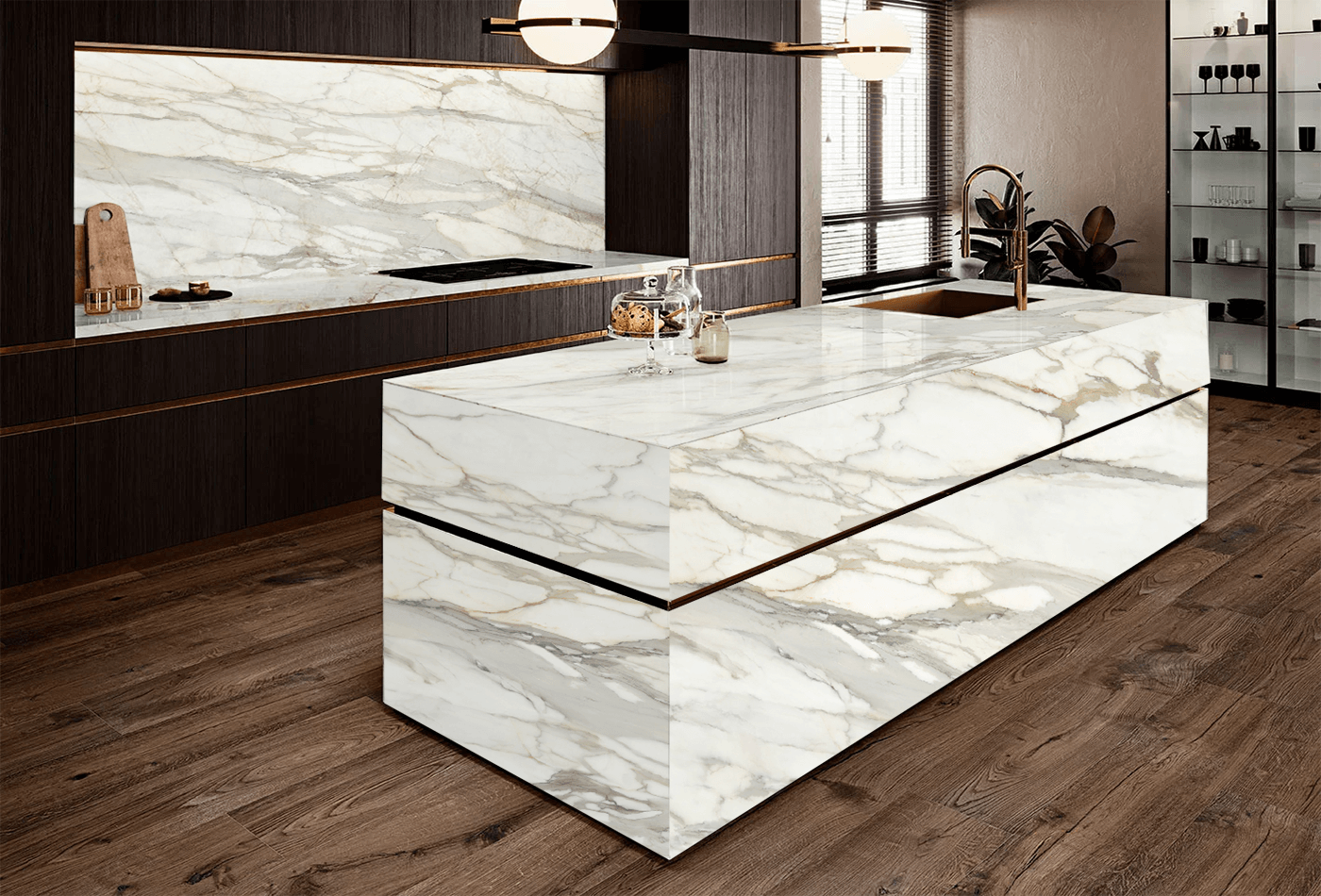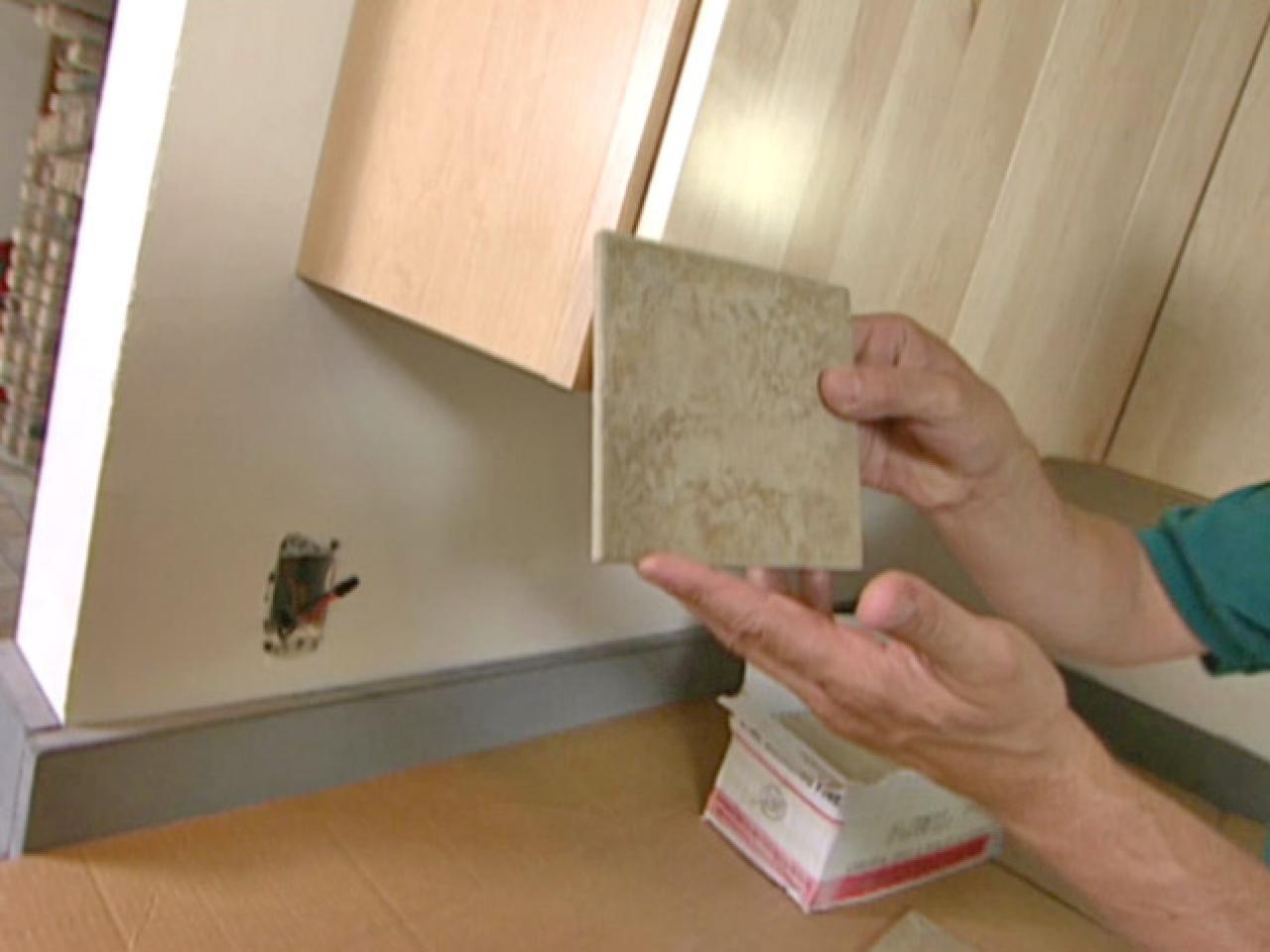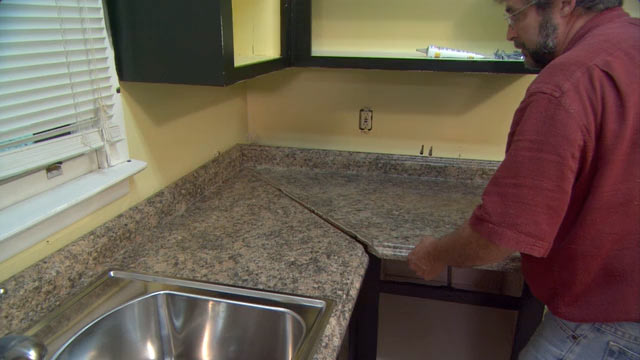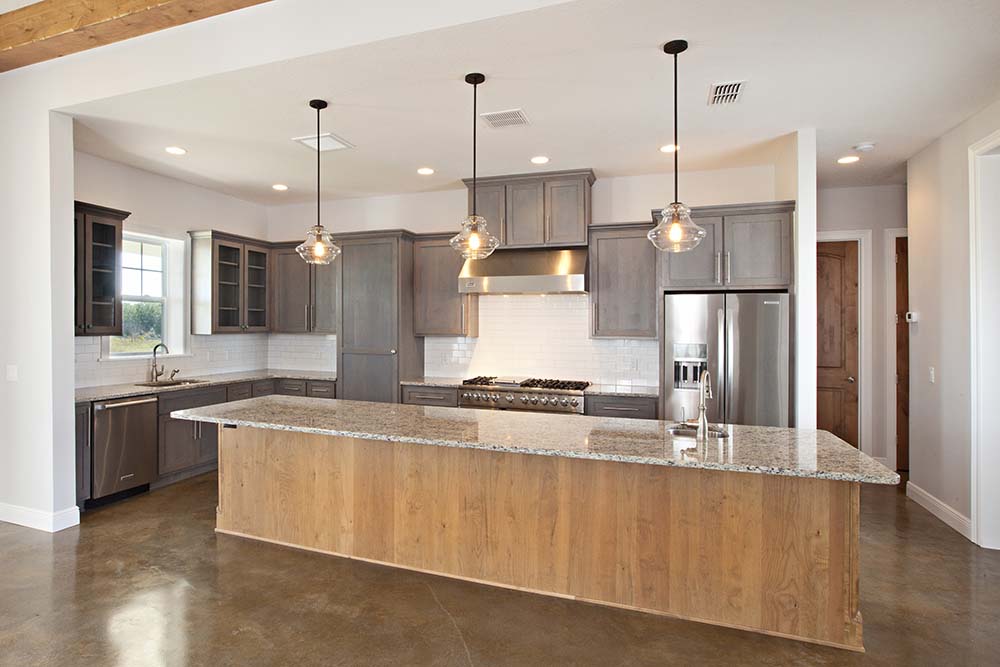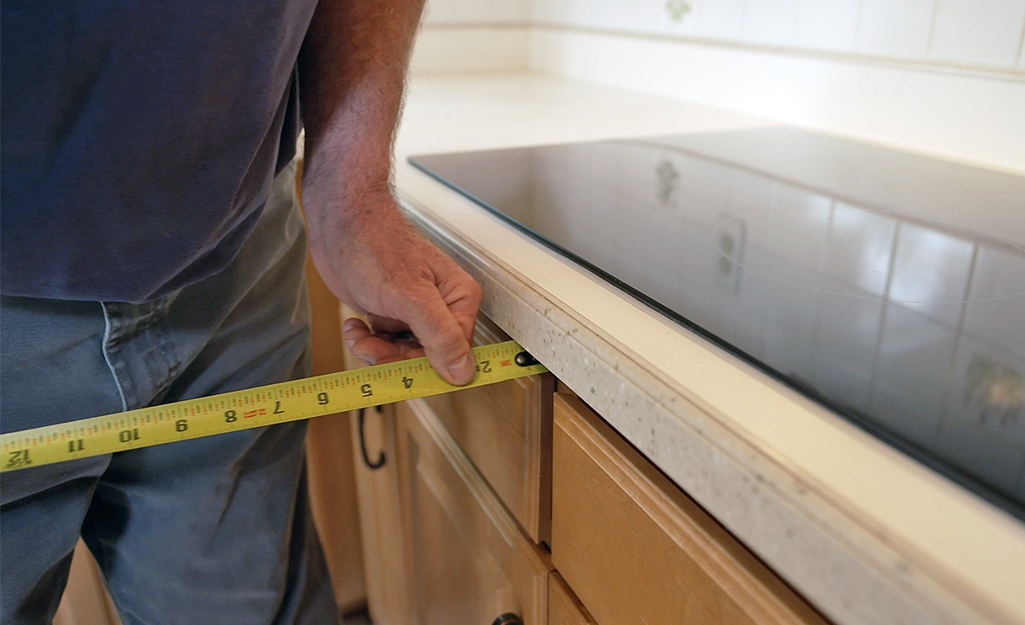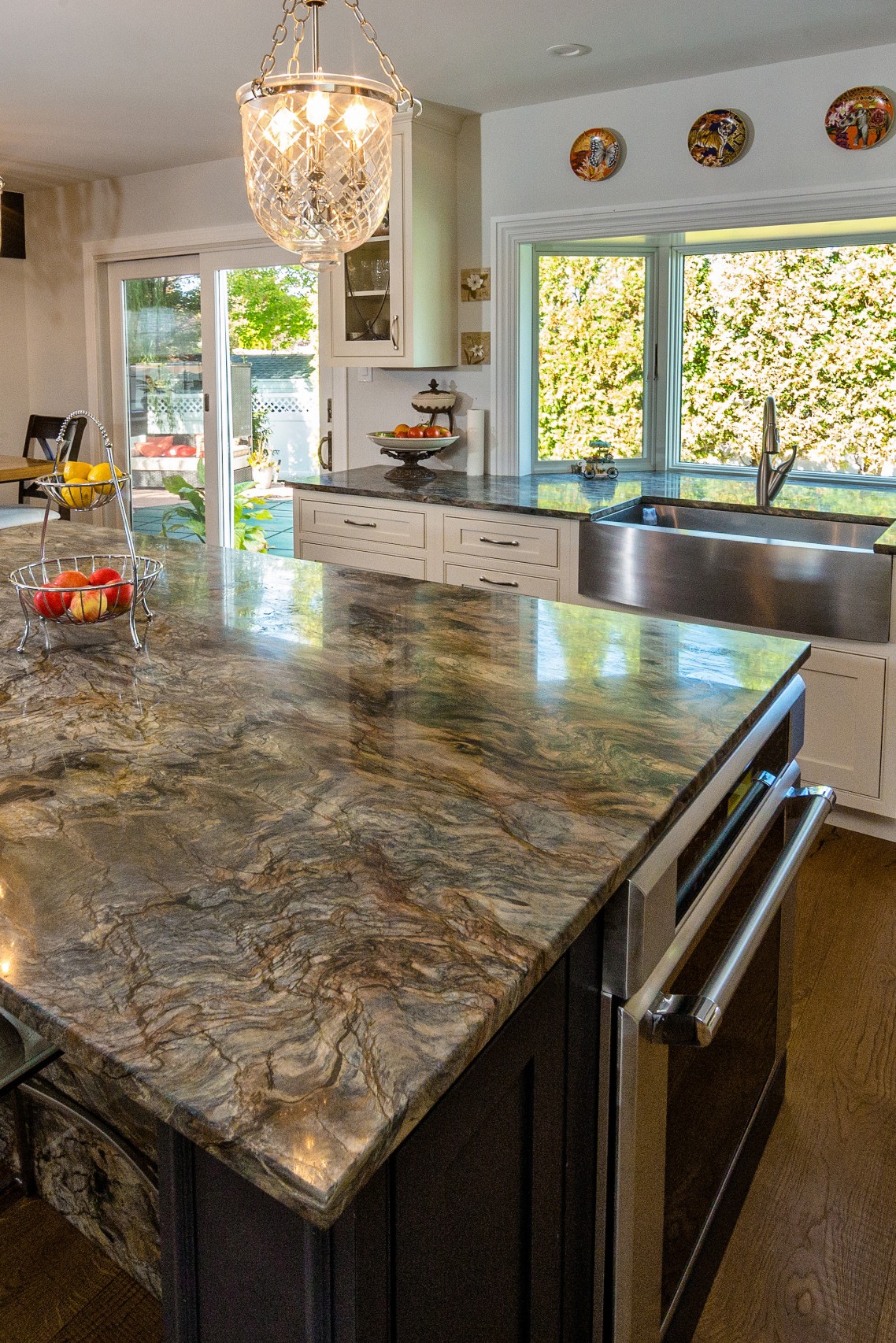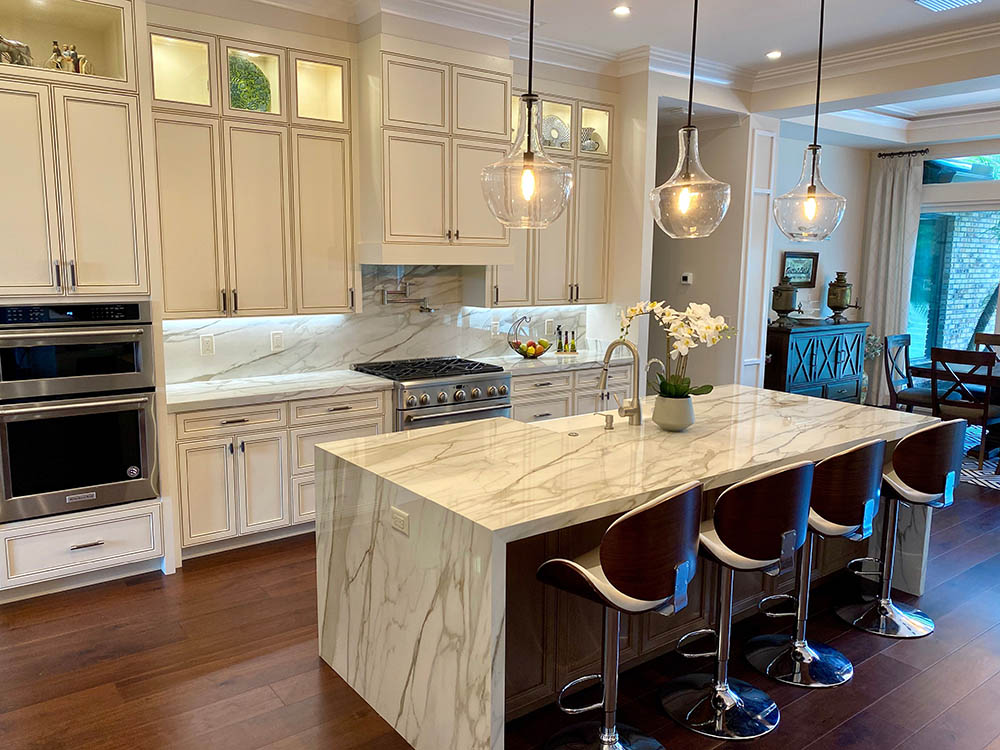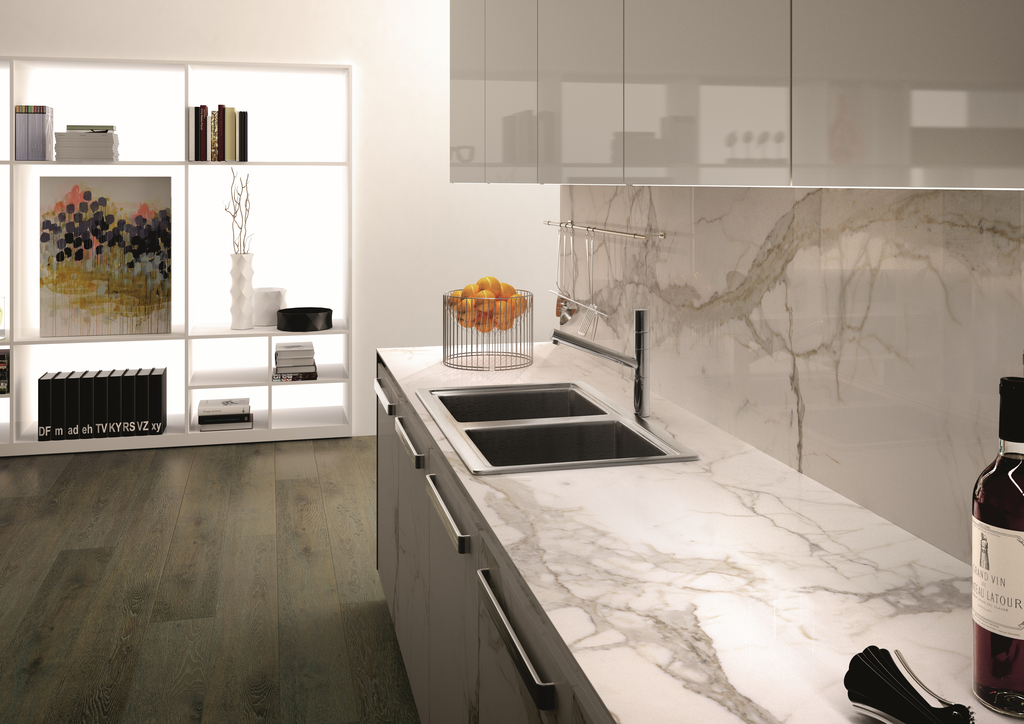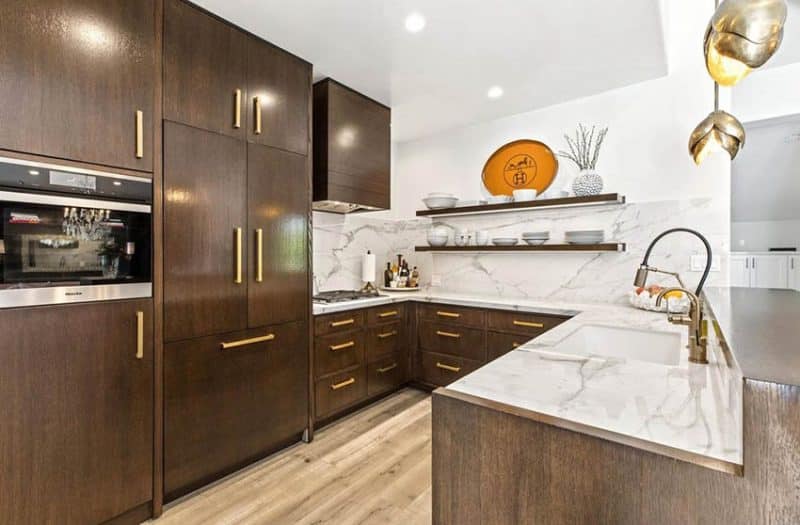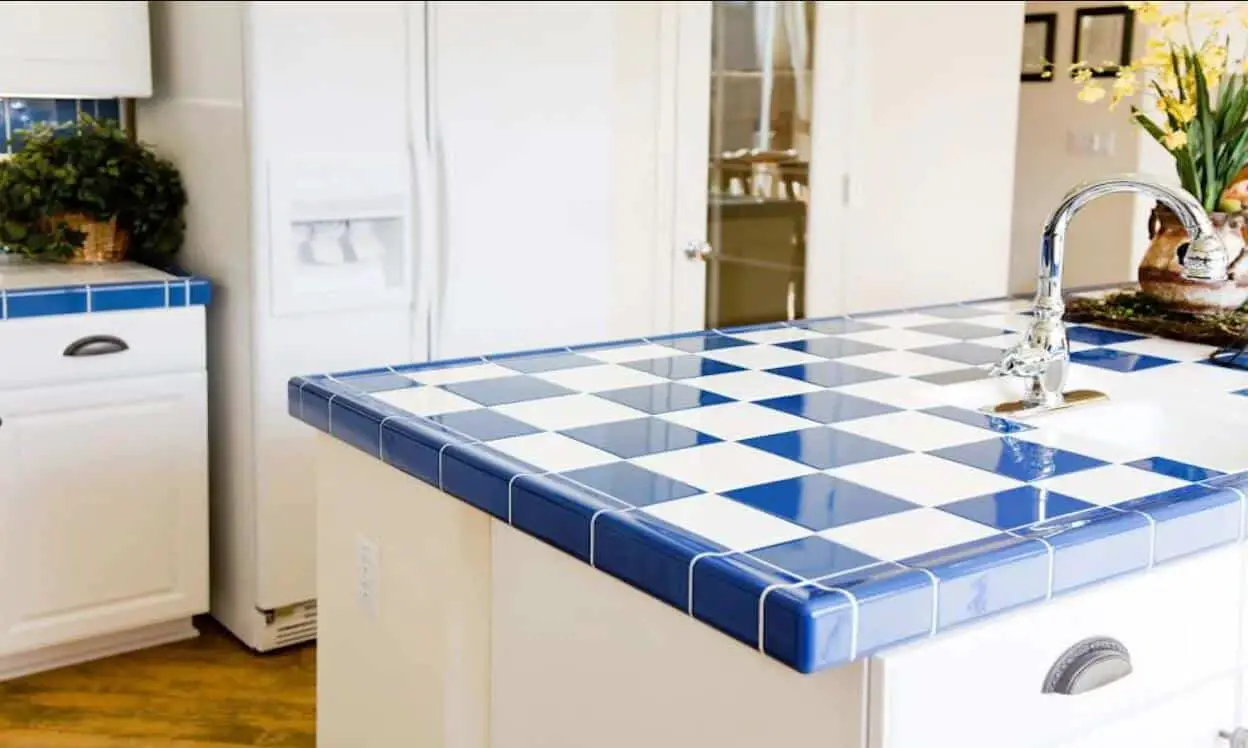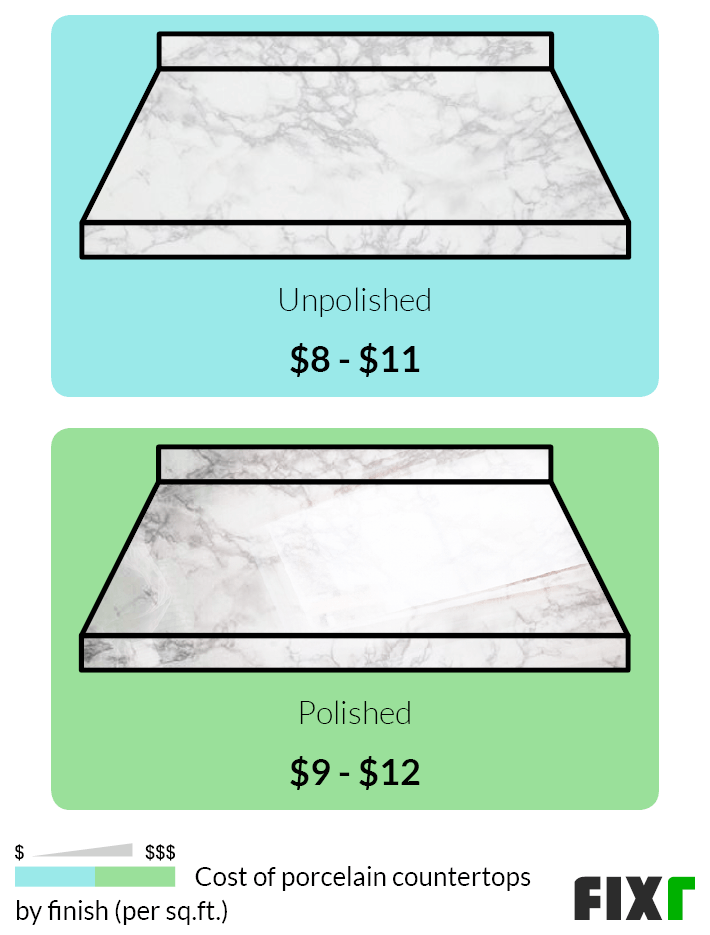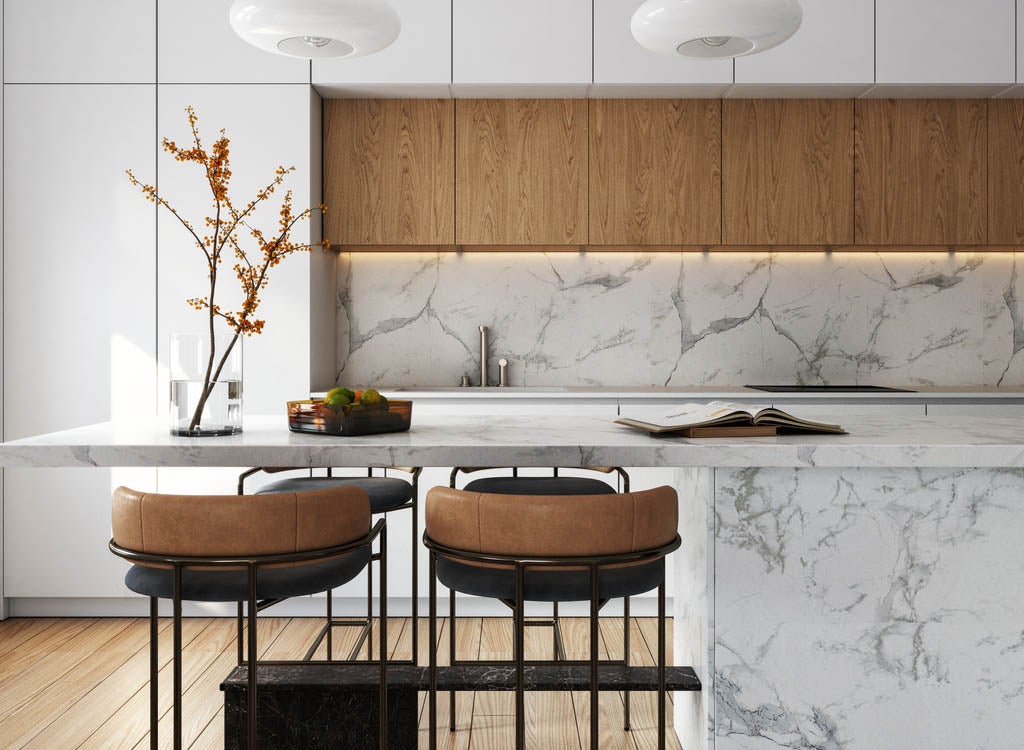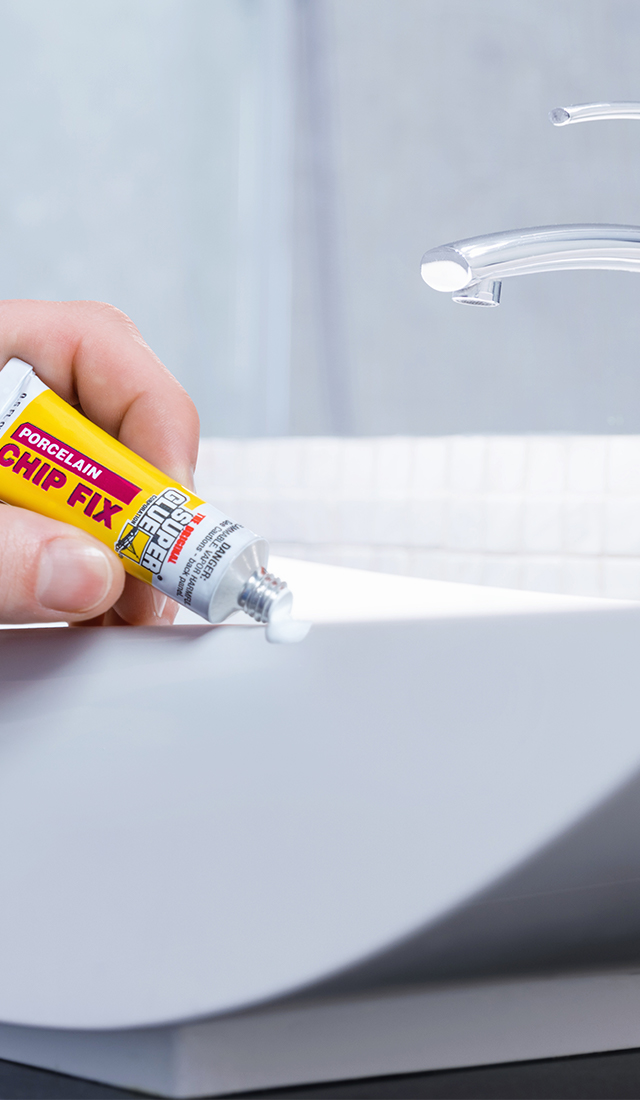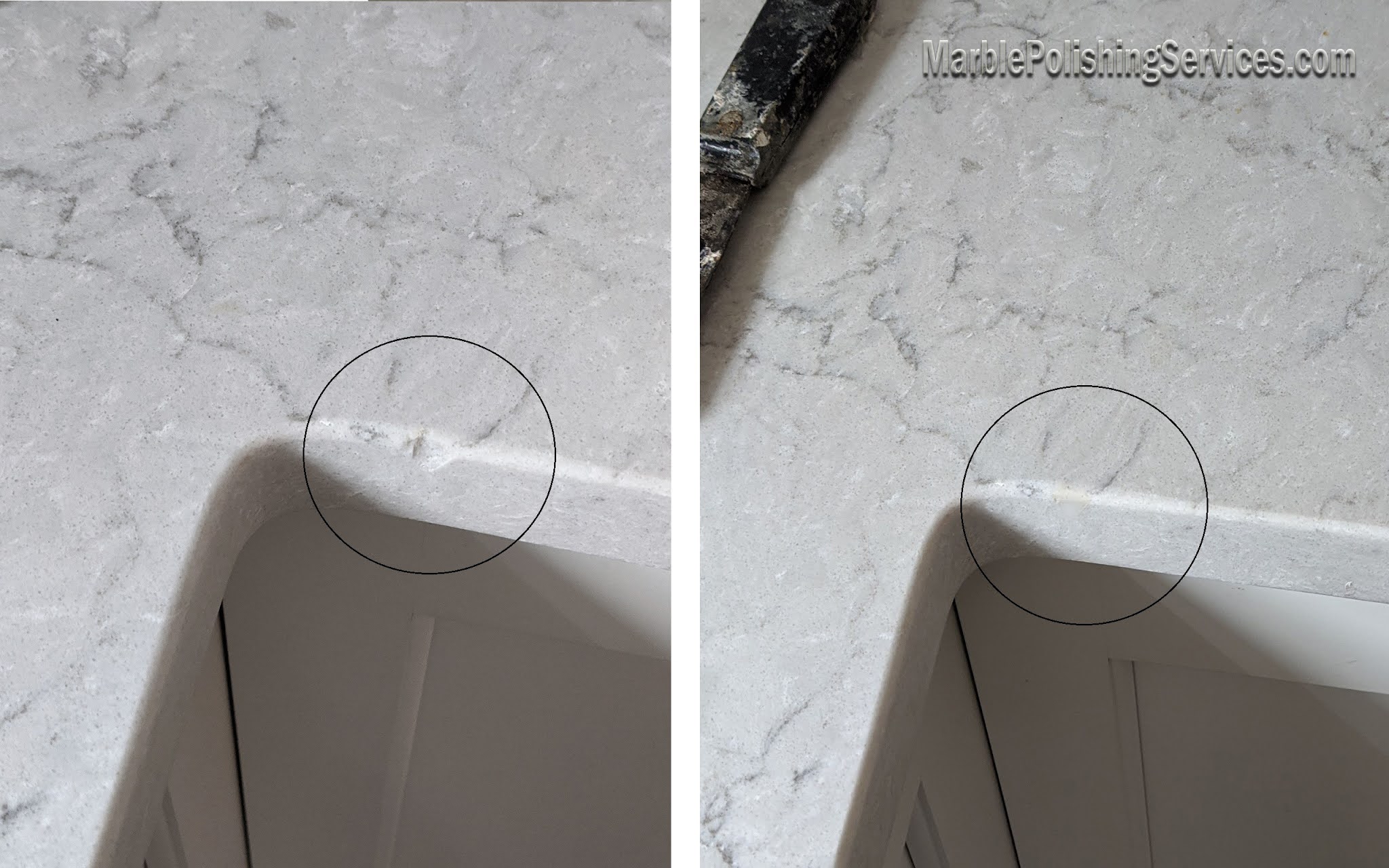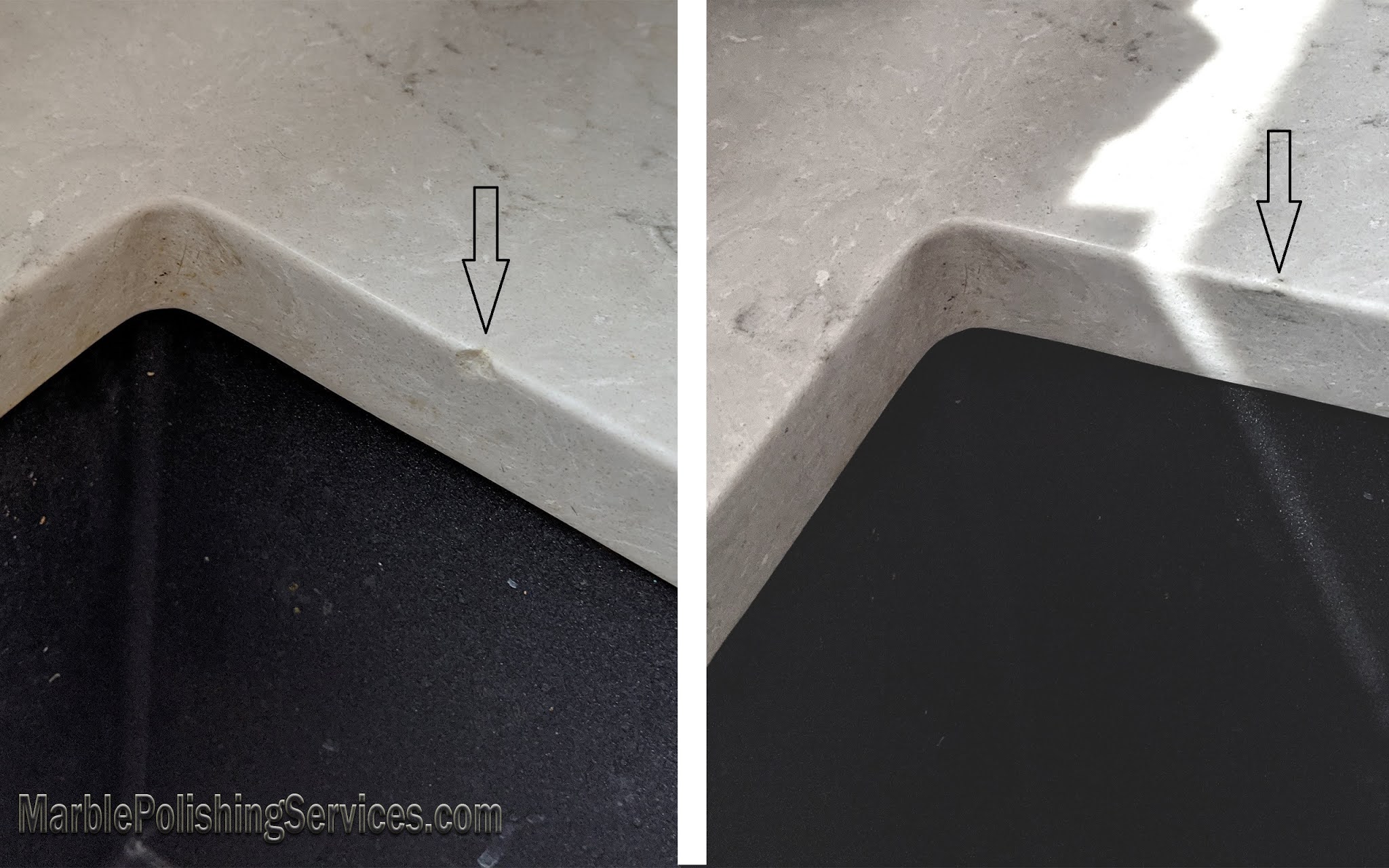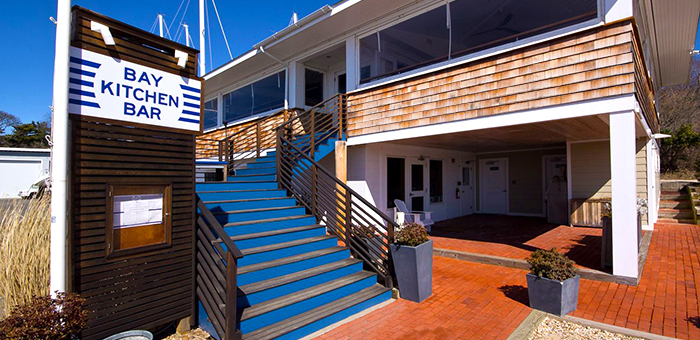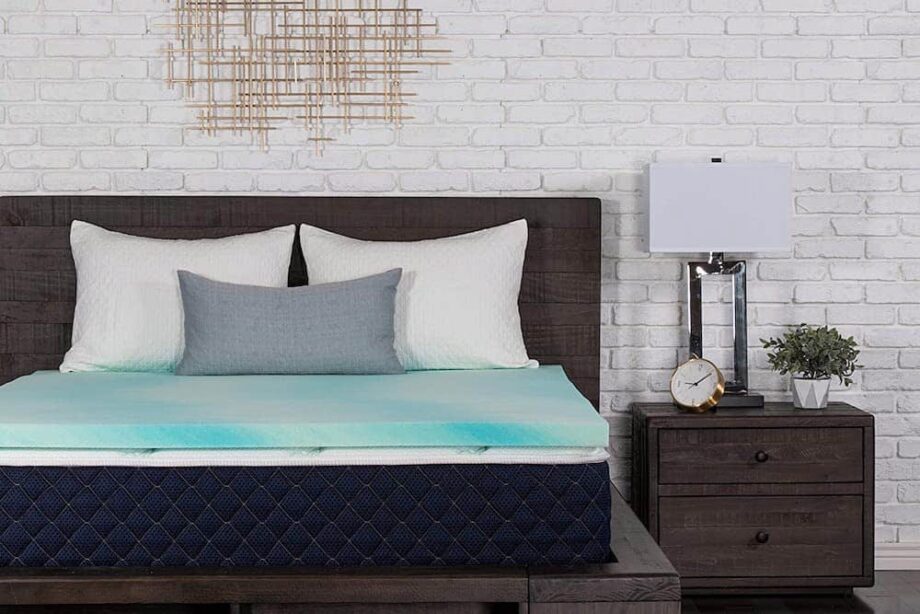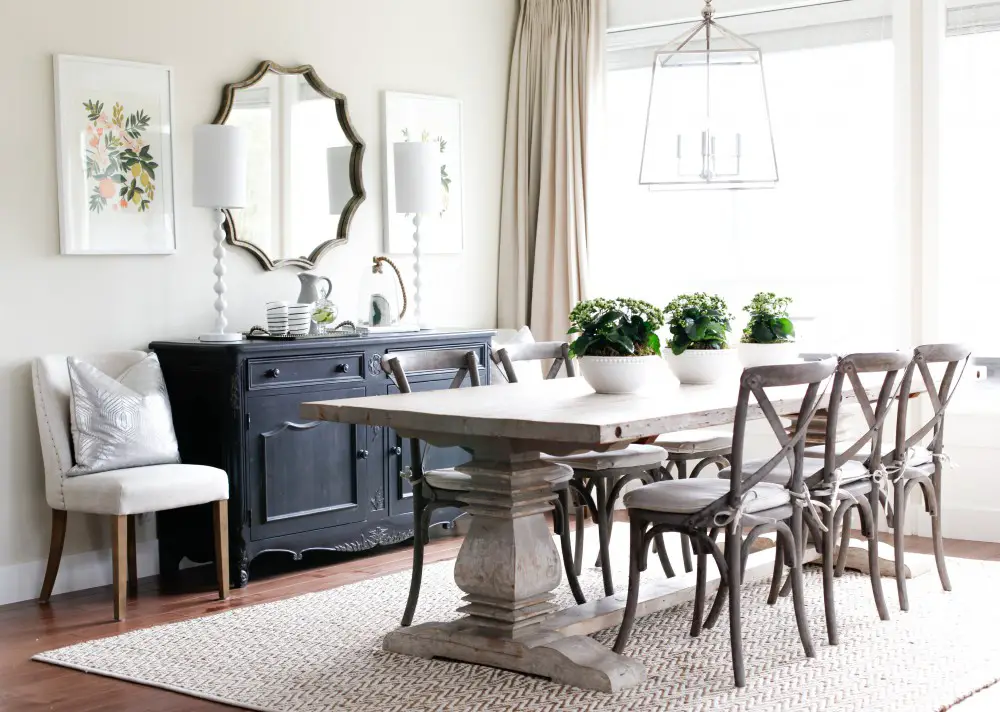Porcelain Countertops: Pros and Cons
When it comes to choosing the perfect countertop for your kitchen, there are many options available. One popular choice among homeowners is porcelain countertops, which offer a unique and stylish look. However, like any other material, porcelain countertops have their own set of pros and cons that should be considered before making a decision.
Pros:
1. Durability: Porcelain countertops are known for their durability and strength, making them a great choice for high-traffic areas like the kitchen. They are resistant to scratches, stains, and heat, making them suitable for everyday use.
2. Low Maintenance: Unlike other countertop materials, porcelain is non-porous, which means it does not require sealing. This makes it easy to clean and maintain, as it does not absorb liquids or stains.
3. Variety of Designs: Porcelain countertops come in a wide range of colors, patterns, and finishes, allowing you to choose the perfect one to match your kitchen's style and décor.
4. Cost-effective: Compared to other high-end materials like granite or quartz, porcelain countertops are relatively more affordable, making them a great budget-friendly option for homeowners.
5. Hygienic: Due to its non-porous nature, porcelain is a hygienic option for kitchen countertops as it does not harbor bacteria or germs. This makes it a safe choice for food preparation.
Cons:
1. Prone to Chipping: While porcelain is a highly durable material, it is prone to chipping if heavy objects are dropped on it. It is important to handle porcelain countertops with care to avoid any damage.
2. Can Be Cold to the Touch: If you live in a colder climate, porcelain countertops may feel cold to the touch, which can be uncomfortable for some people.
3. Not Completely Heat Resistant: While porcelain is heat resistant, it is not completely heat-proof, and placing hot pots or pans directly on the surface can cause damage. It is recommended to use trivets or hot pads to protect the countertop.
4. May Develop Hairline Cracks: Over time, porcelain countertops may develop hairline cracks due to the stress from heavy objects or temperature changes. However, these cracks are usually cosmetic and do not affect the functionality of the countertop.
Porcelain Countertops: A Buyer's Guide
When shopping for porcelain countertops, it is important to keep a few key factors in mind to ensure you make the best decision for your kitchen. Here are some things to consider when buying porcelain countertops:
1. Design: Porcelain countertops come in a variety of designs, from solid colors to intricate patterns. Consider the overall design and style of your kitchen when choosing a design for your countertop.
2. Thickness: Porcelain countertops are available in different thicknesses, usually ranging from 6mm to 12mm. Thicker countertops are more durable and can withstand heavy use, but they also come at a higher cost.
3. Finish: Porcelain countertops can have a polished, matte, or textured finish. Each finish has its own unique look and feel, so consider which one will best suit your kitchen.
4. Cost: As mentioned earlier, porcelain countertops are a budget-friendly option compared to other materials. However, the cost can vary depending on the design, thickness, and finish you choose.
5. Installation: Porcelain countertops require professional installation to ensure a proper fit and finish. Be sure to factor in the cost of installation when budgeting for your new countertops.
How to Clean and Maintain Porcelain Countertops
One of the biggest advantages of porcelain countertops is their low maintenance. Here are some tips to keep your porcelain countertops clean and looking like new:
1. Wipe Up Spills Immediately: As porcelain is non-porous, spills will not seep into the surface. However, it is still important to wipe up spills immediately to prevent any potential staining.
2. Use Mild Cleaners: Avoid using harsh chemicals or abrasive cleaners on your porcelain countertops, as they can cause damage. Stick to mild cleaners or warm soapy water for everyday cleaning.
3. Avoid Scratching: While porcelain is scratch-resistant, it is not completely scratch-proof. Avoid using abrasive materials or sharp tools on the surface to avoid scratching.
4. Regularly Seal Grout Lines: If your porcelain countertops have grout lines, it is important to regularly seal them to prevent any staining or discoloration.
5. Protect from Heat: As mentioned earlier, porcelain is not completely heat-proof. Use trivets or hot pads to protect the surface from hot pots and pans.
Porcelain vs. Granite Countertops: Which is Better?
Granite has long been a popular choice for kitchen countertops, but porcelain is quickly gaining popularity. Here is a comparison between the two materials to help you decide which is better for your kitchen:
1. Durability: Both granite and porcelain are highly durable materials, but porcelain is slightly more resistant to scratches and stains.
2. Maintenance: Both materials are low maintenance, but porcelain does not require sealing like granite does.
3. Design Options: While granite offers a natural and unique look, porcelain comes in a wider range of designs and colors to choose from.
4. Cost: Porcelain is a more budget-friendly option compared to granite, which can be quite expensive.
5. Heat Resistance: Granite is more heat-resistant than porcelain, making it a better choice for those who do a lot of cooking.
Ultimately, the choice between porcelain and granite countertops will depend on your personal preferences and needs.
Top 10 Porcelain Countertop Brands
With the growing popularity of porcelain countertops, there are now many brands that offer this material. Here are the top 10 porcelain countertop brands to consider:
1. Dekton: Known for its durability and variety of designs, Dekton is a top choice for porcelain countertops.
2. Neolith: Neolith offers a wide range of colors and finishes for porcelain countertops, with a focus on sustainability.
3. Lapitec: Lapitec specializes in large format porcelain countertops, making it a great option for seamless kitchen designs.
4. Florim Stone: With a focus on high-quality and eco-friendly products, Florim Stone offers a beautiful selection of porcelain countertops.
5. SapienStone: SapienStone offers a variety of finishes and designs for porcelain countertops, with a focus on durability and resistance to heat and scratching.
6. Laminam: Laminam offers ultra-thin porcelain countertops that are perfect for modern and minimalist kitchen designs.
7. Inalco: Inalco's porcelain countertops are known for their durability and resistance to stains and scratches.
8. Silestone: Silestone is a popular brand known for its quartz countertops, but they also offer a line of porcelain countertops with a variety of designs.
9. Fiandre: Fiandre offers a range of porcelain countertops with unique designs and finishes, perfect for adding a touch of elegance to your kitchen.
10. Caesarstone: Known for their quartz countertops, Caesarstone also offers a line of porcelain countertops that mimic the look of natural stone.
Porcelain Countertop Installation: Step-by-Step Guide
Installing porcelain countertops is a job best left to professionals, but it is helpful to understand the steps involved in the process. Here is a step-by-step guide to porcelain countertop installation:
1. Measure and Cut: The first step is to measure the space and cut the porcelain countertops to fit the dimensions of your kitchen.
2. Prepare the Base: The base or cabinets where the countertops will be installed should be level and sturdy to support the weight of the porcelain.
3. Apply Adhesive: A special adhesive is used to secure the porcelain countertops to the base. This adhesive also helps to level the surface and fill any gaps.
4. Set the Countertop: The countertops are carefully placed on top of the base, and any excess adhesive is removed.
5. Seal the Edges: Once the countertops are in place, the edges are sealed to prevent any water or liquid from seeping in.
6. Finish and Clean: Any remaining adhesive is cleaned off, and the countertops are finished with a sealer to protect the surface. The countertops are then cleaned and polished.
Porcelain Countertop Design Ideas for Your Kitchen
Porcelain countertops offer a wide range of design options, making them a versatile choice for any kitchen style. Here are some design ideas to inspire you:
1. Bold Patterns: Opt for a bold and eye-catching pattern on your porcelain countertops to add a statement piece to your kitchen.
2. Marble Look: Porcelain can mimic the look of marble, making it a more affordable alternative for those who love the luxurious look of marble countertops.
3. Monochrome: For a sleek and modern look, choose a monochrome porcelain countertop in a solid color.
4. Wood Look: If you love the warmth and natural look of wood, opt for a porcelain countertop that mimics the look of wood grain.
5. Industrial Style: Pair your porcelain countertops with industrial-style cabinets and fixtures for a modern and edgy look.
Porcelain Countertops: Cost and Pricing Guide
The cost of porcelain countertops can vary depending on the brand, design, and thickness. On average, you can expect to pay between $60-$100 per square foot for porcelain countertops. However, the final cost will also depend on installation fees and any additional services, such as edge treatments or sealing.
How to Repair Chips and Scratches on Porcelain Countertops
Chips and scratches can happen on porcelain countertops, but they can be easily repaired with the right tools and techniques. Here is a step-by-step guide to repairing chips and scratches on porcelain countertops:
1. Clean the Area: Before starting the repair, make sure the area is clean and free of any debris or dirt.
2. Fill the Chip or Scratch: Use a porcelain repair kit to fill the chip or scratch. Follow the instructions on the kit carefully.
3. Sand Down the Area: Once the filler has dried, sand down the area with a fine-grit sandpaper until it is smooth and level with the rest of the countertop.
4. Buff and Polish: Use a buffing pad to polish the repaired area and blend it in with the rest of the countertop.
Porcelain Countertops: Frequently Asked Questions
Here are some commonly asked questions about porcelain countertops:
1. Are porcelain countertops heat-resistant?
While porcelain is heat-resistant, it is not completely heat-proof, so it is best to use trivets or hot pads to protect the surface.
2. Can I cut directly on porcelain countertops?
No, it is not recommended to cut directly on porcelain countertops as it can cause scratches and damage to the surface.
3. How do I remove stains from porcelain countertops?
For most stains, warm soapy water or a mild cleaner should do the trick. For tougher stains, a mixture of baking soda and water can be used as a gentle scrub.
4. Can I install porcelain countertops myself?
Porcelain countertop installation is best left to professionals to ensure proper fit and installation.
5. How long do porcelain countertops last?
With proper care and maintenance, porcelain countertops can last for many years, even up to 20 years or more.
In conclusion, porcelain countertops offer a great combination of style, durability, and low maintenance, making them a popular choice for homeowners. By considering the pros and cons, doing your research, and following proper care and maintenance, you can enjoy beautiful and functional porcelain countertops in your kitchen for years to come.
The Benefits of Choosing Porcelain Counter Tops for Your Kitchen Table
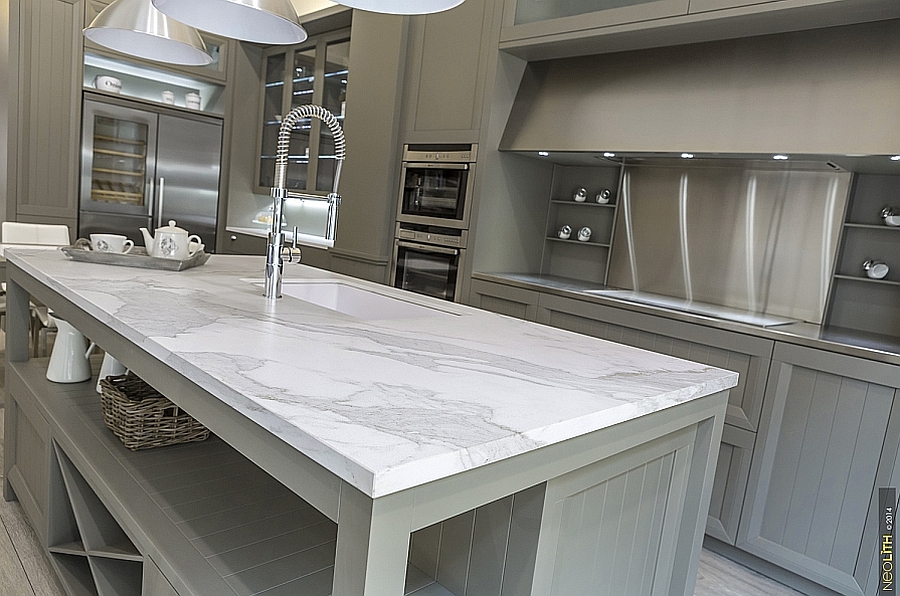
What are Porcelain Counter Tops?
 Porcelain
is a type of ceramic material that is made from fine-grained clay and fired at high temperatures, resulting in a dense and durable surface.
Counter tops
are horizontal surfaces in a kitchen that are used for food preparation and often serve as a gathering place for family and friends.
Porcelain counter tops
combine the beauty of porcelain with the functionality of a kitchen counter top, making them a popular choice for modern house designs.
Porcelain
is a type of ceramic material that is made from fine-grained clay and fired at high temperatures, resulting in a dense and durable surface.
Counter tops
are horizontal surfaces in a kitchen that are used for food preparation and often serve as a gathering place for family and friends.
Porcelain counter tops
combine the beauty of porcelain with the functionality of a kitchen counter top, making them a popular choice for modern house designs.
The Aesthetic Appeal
 One of the main reasons why
porcelain counter tops
are favored in kitchen designs is because of their aesthetic appeal. They come in a variety of colors, patterns, and textures, allowing homeowners to choose the perfect fit for their kitchen design. Whether you prefer a sleek and modern look or a more traditional and rustic feel, there is a
porcelain counter top
option that will complement your overall house design.
One of the main reasons why
porcelain counter tops
are favored in kitchen designs is because of their aesthetic appeal. They come in a variety of colors, patterns, and textures, allowing homeowners to choose the perfect fit for their kitchen design. Whether you prefer a sleek and modern look or a more traditional and rustic feel, there is a
porcelain counter top
option that will complement your overall house design.
Durability and Strength
 Another major advantage of
porcelain counter tops
is their durability and strength. They are resistant to scratches, stains, and heat, making them an ideal choice for a high-traffic area like the kitchen. This also means that they require minimal maintenance and will retain their beauty for many years to come. Additionally, porcelain is a non-porous material, making it hygienic and easy to clean, which is essential in a food preparation space.
Another major advantage of
porcelain counter tops
is their durability and strength. They are resistant to scratches, stains, and heat, making them an ideal choice for a high-traffic area like the kitchen. This also means that they require minimal maintenance and will retain their beauty for many years to come. Additionally, porcelain is a non-porous material, making it hygienic and easy to clean, which is essential in a food preparation space.
Cost-Effective Option
 While
porcelain counter tops
may seem like a luxurious choice, they are actually a cost-effective option in the long run. Due to their durability and low maintenance, they will save you money on repairs and replacements in the future. Plus, with their timeless appeal, they can add value to your house and potentially increase its resale value.
While
porcelain counter tops
may seem like a luxurious choice, they are actually a cost-effective option in the long run. Due to their durability and low maintenance, they will save you money on repairs and replacements in the future. Plus, with their timeless appeal, they can add value to your house and potentially increase its resale value.
Versatility in Design
 One of the most exciting features of
porcelain counter tops
is their versatility in design. They can be used not only in the kitchen, but also in other areas of the house such as the bathroom or even as a statement piece of furniture. With the variety of colors, patterns, and textures available, the possibilities are endless in incorporating
porcelain counter tops
into your overall house design.
In conclusion,
porcelain counter tops
are an excellent choice for your kitchen table due to their aesthetic appeal, durability, cost-effectiveness, and versatility in design. They not only elevate the look of your kitchen, but also provide a functional and practical surface for your daily use. Consider incorporating
porcelain counter tops
into your house design for a beautiful and long-lasting addition to your home.
One of the most exciting features of
porcelain counter tops
is their versatility in design. They can be used not only in the kitchen, but also in other areas of the house such as the bathroom or even as a statement piece of furniture. With the variety of colors, patterns, and textures available, the possibilities are endless in incorporating
porcelain counter tops
into your overall house design.
In conclusion,
porcelain counter tops
are an excellent choice for your kitchen table due to their aesthetic appeal, durability, cost-effectiveness, and versatility in design. They not only elevate the look of your kitchen, but also provide a functional and practical surface for your daily use. Consider incorporating
porcelain counter tops
into your house design for a beautiful and long-lasting addition to your home.
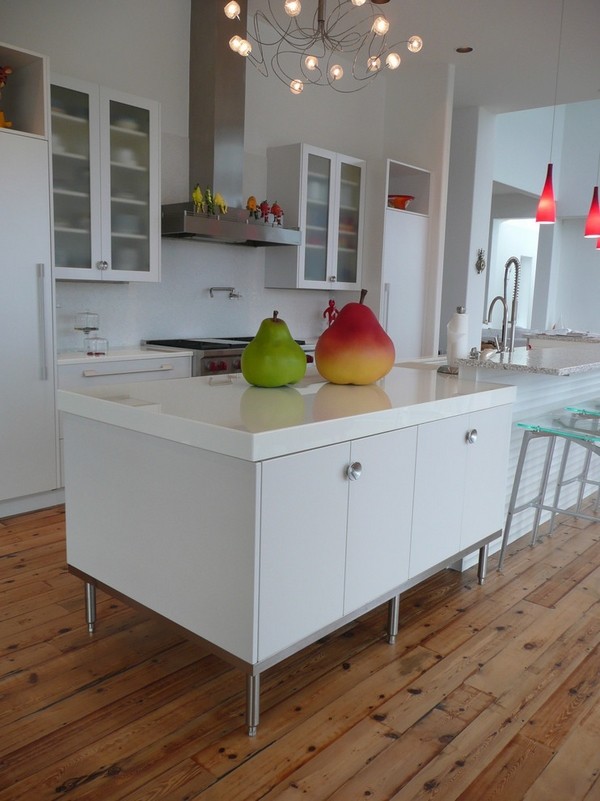



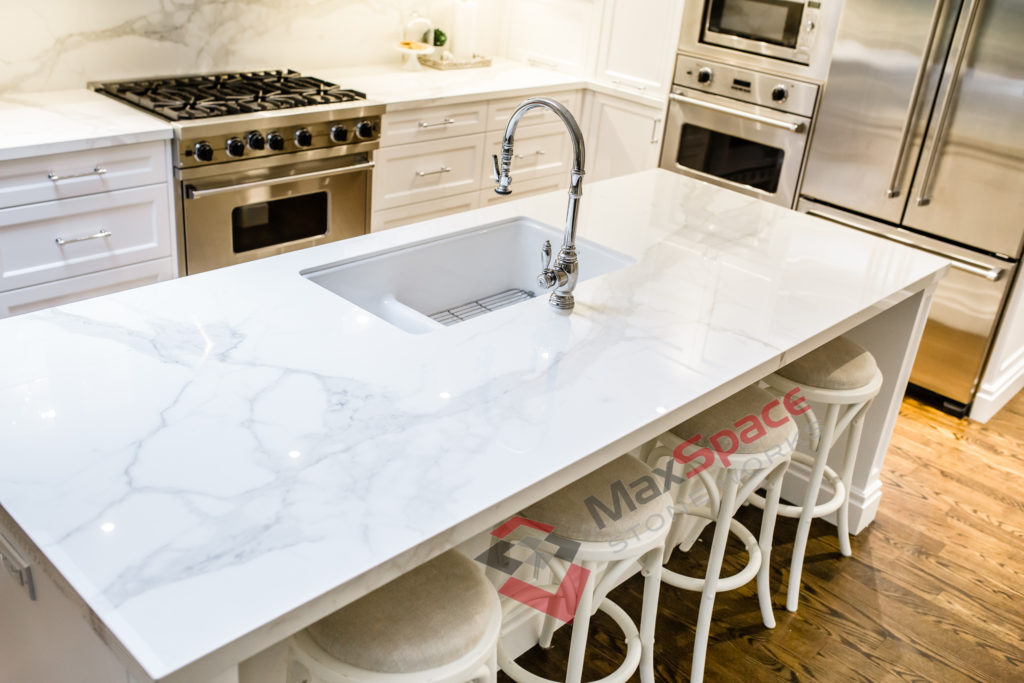
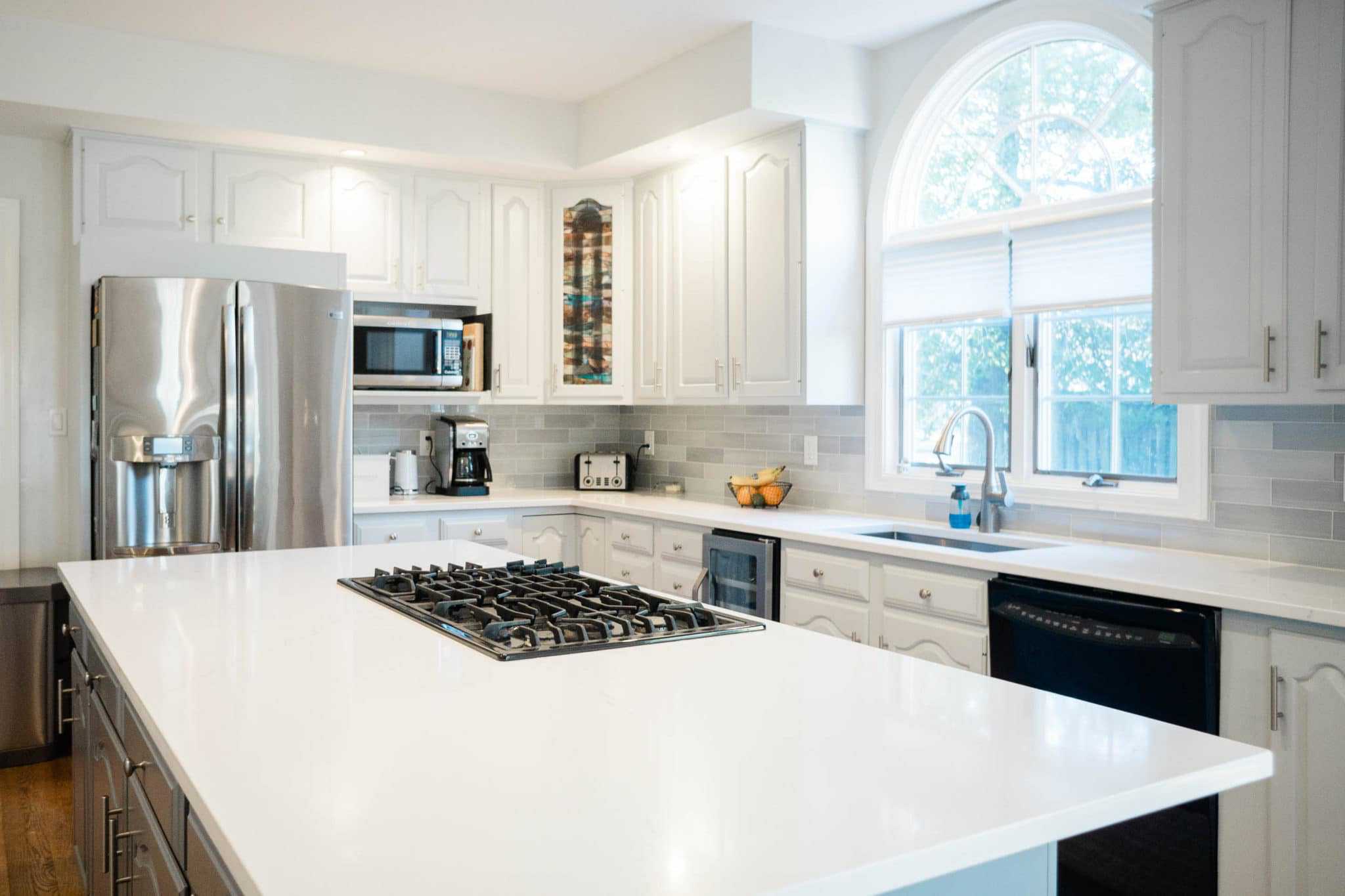
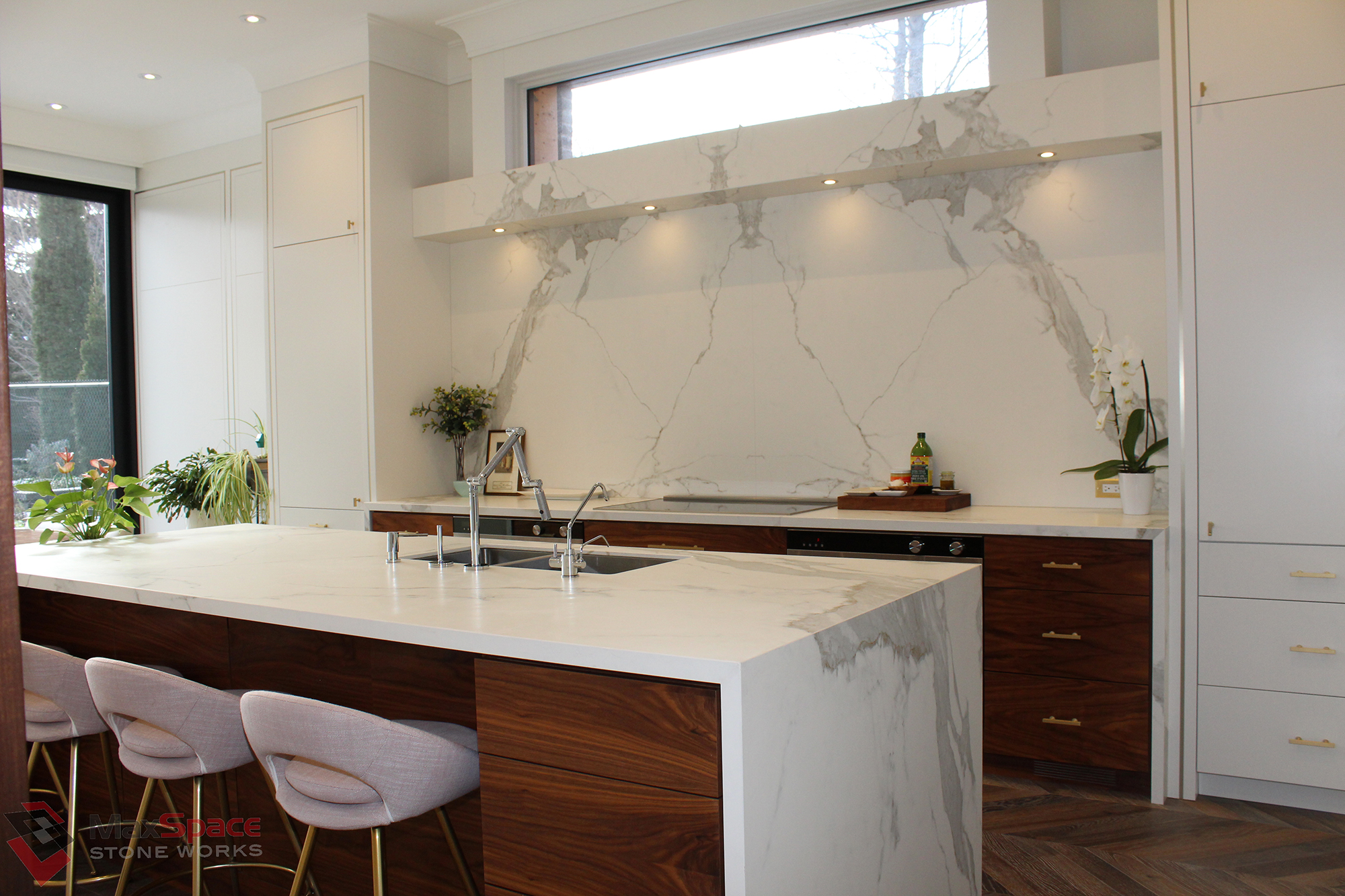





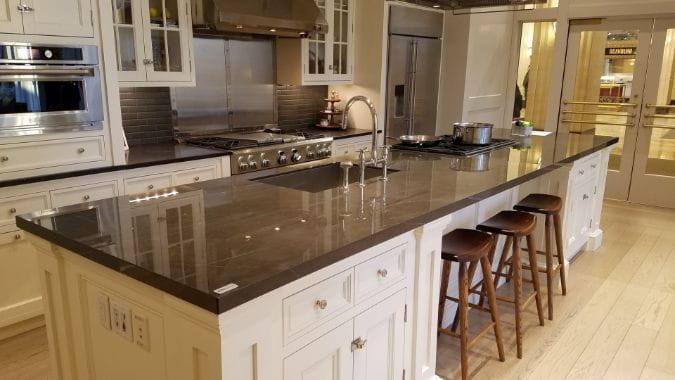
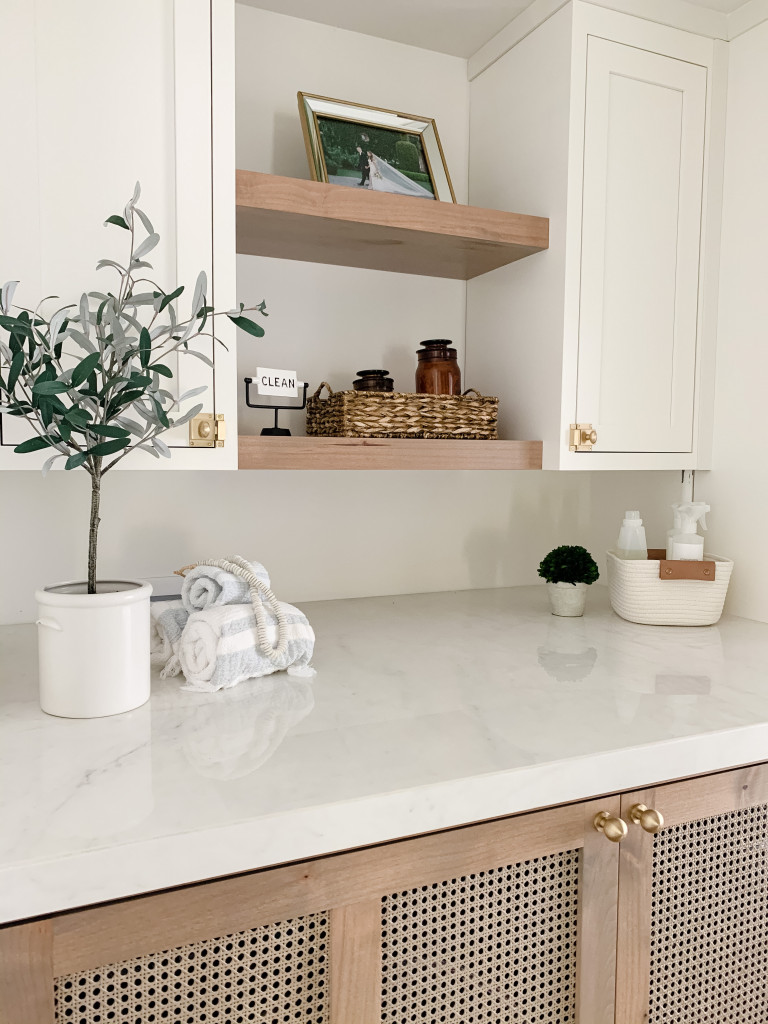

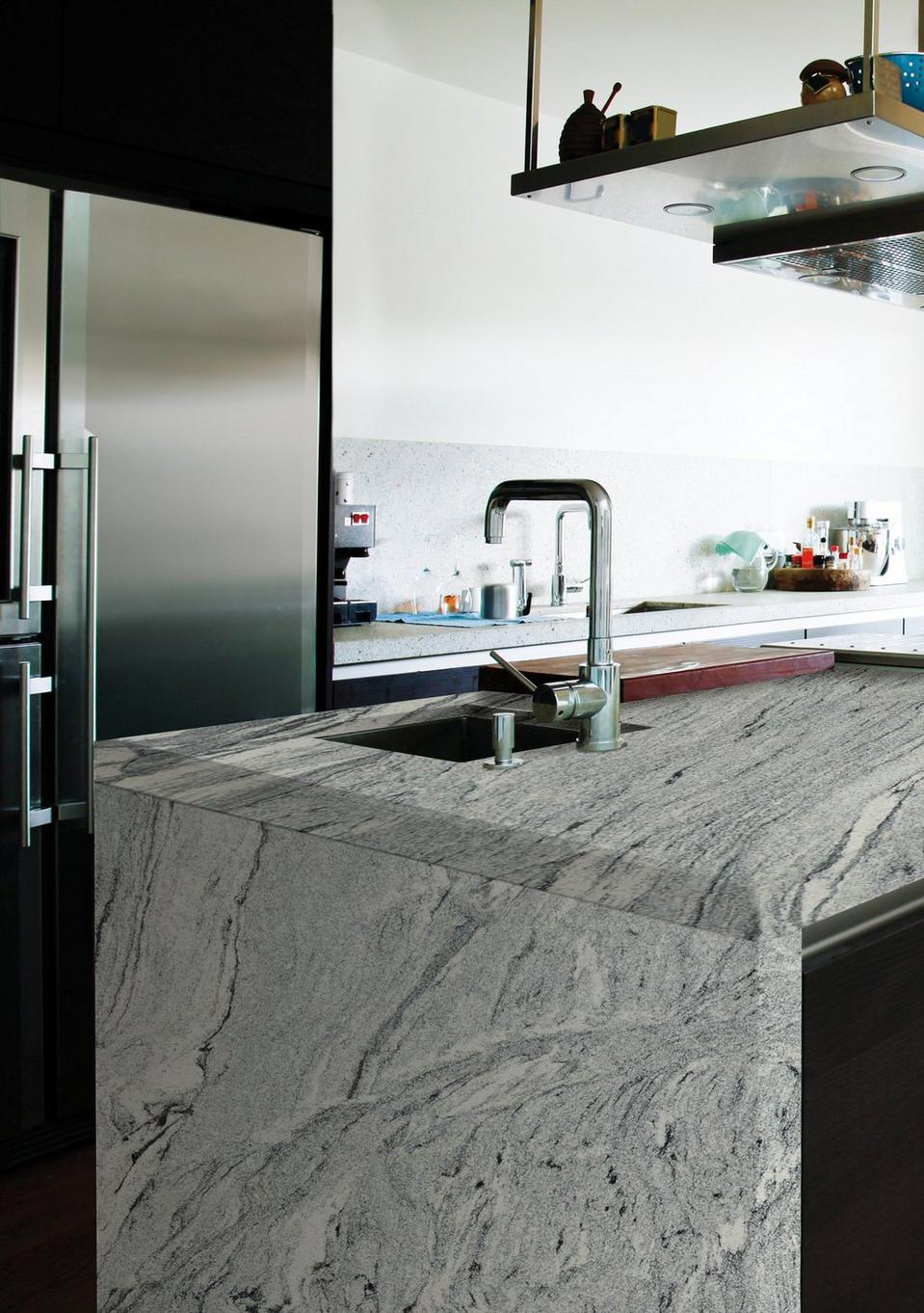
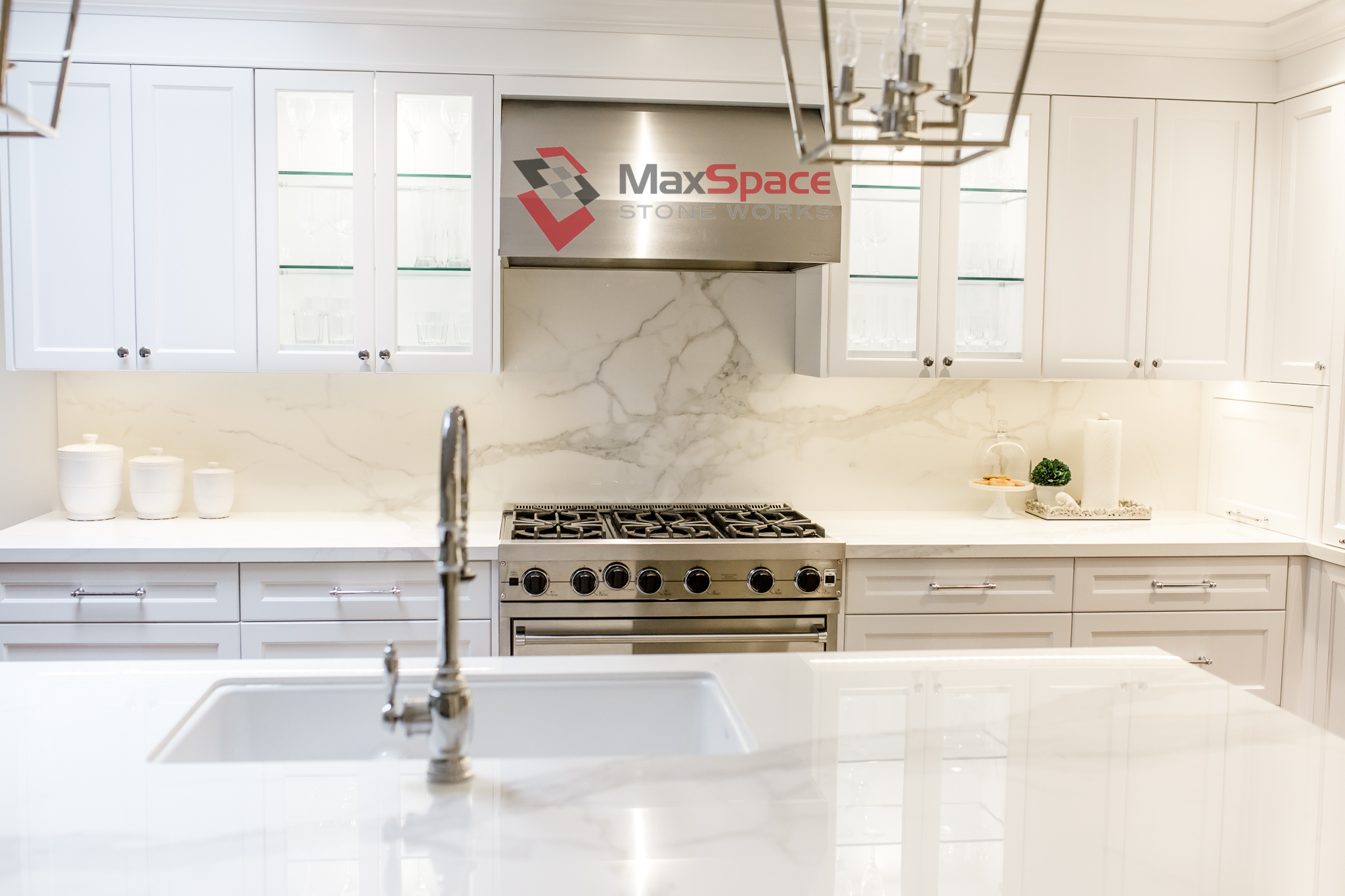
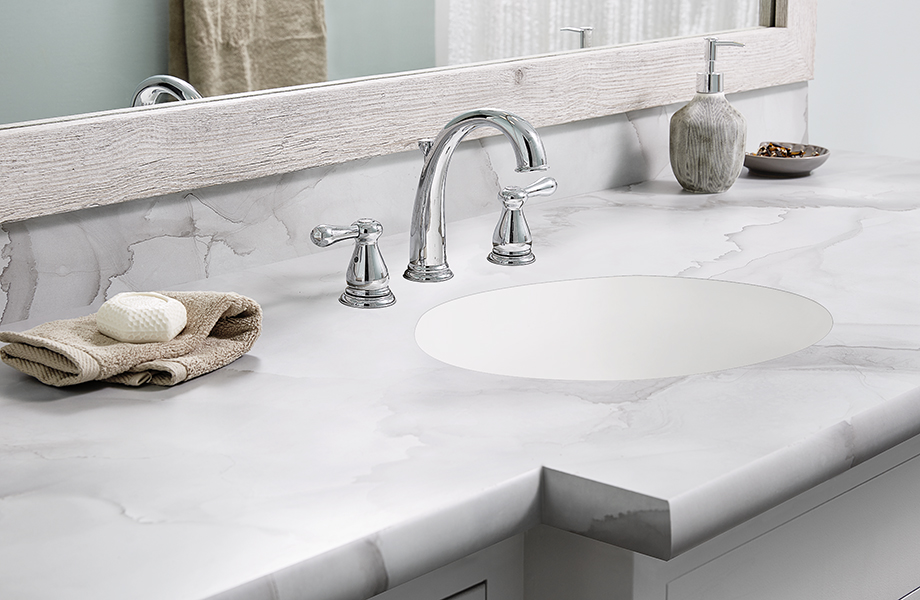
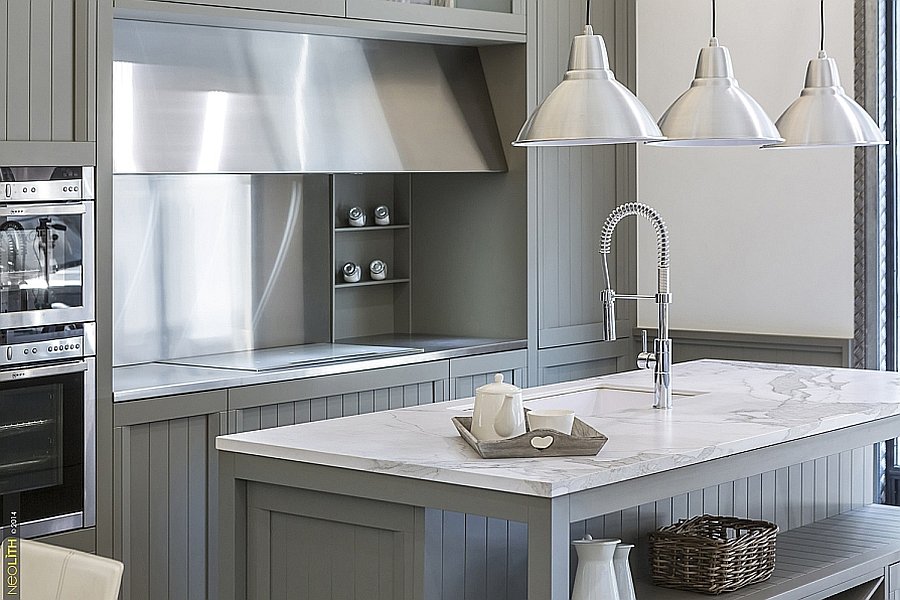
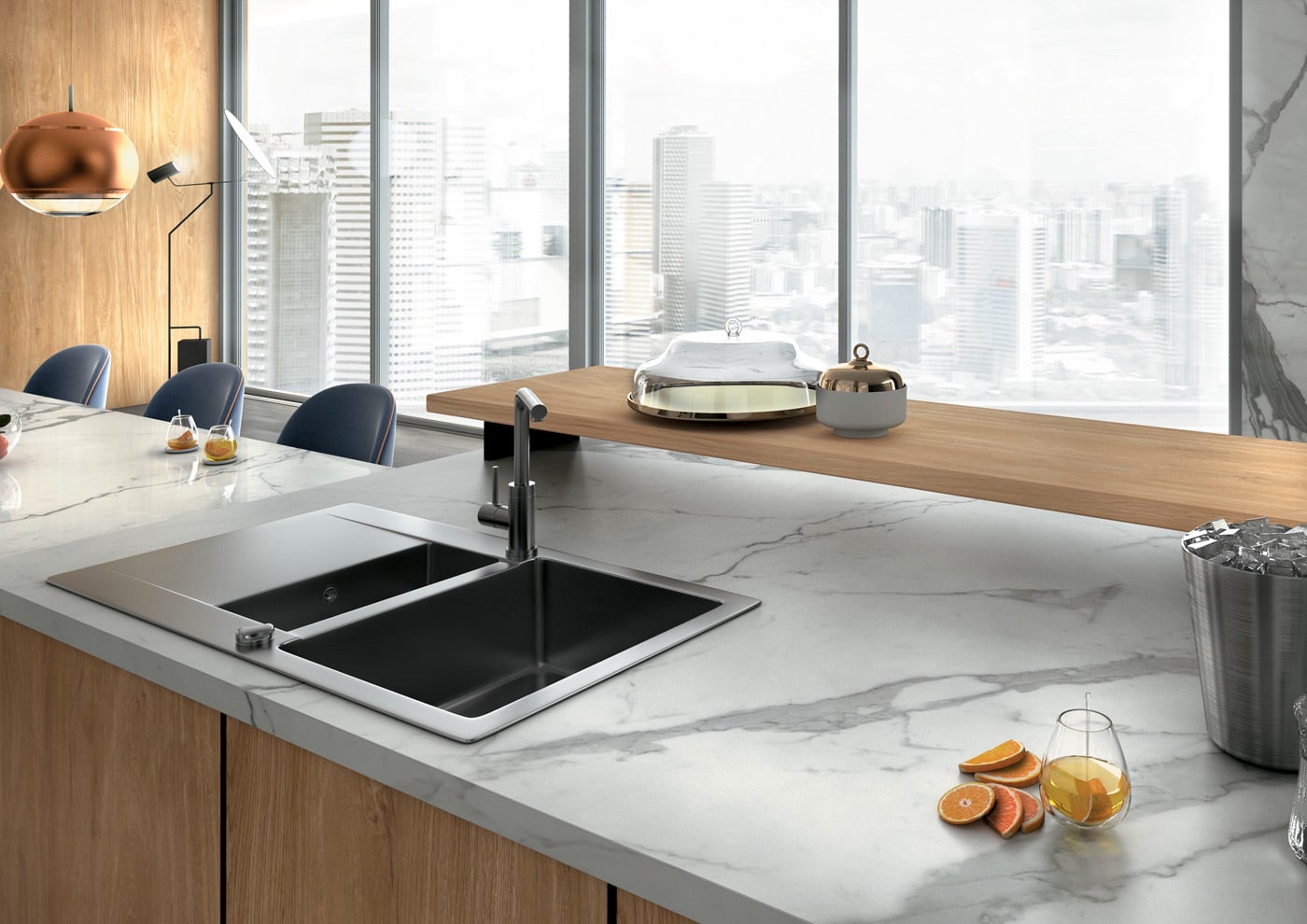
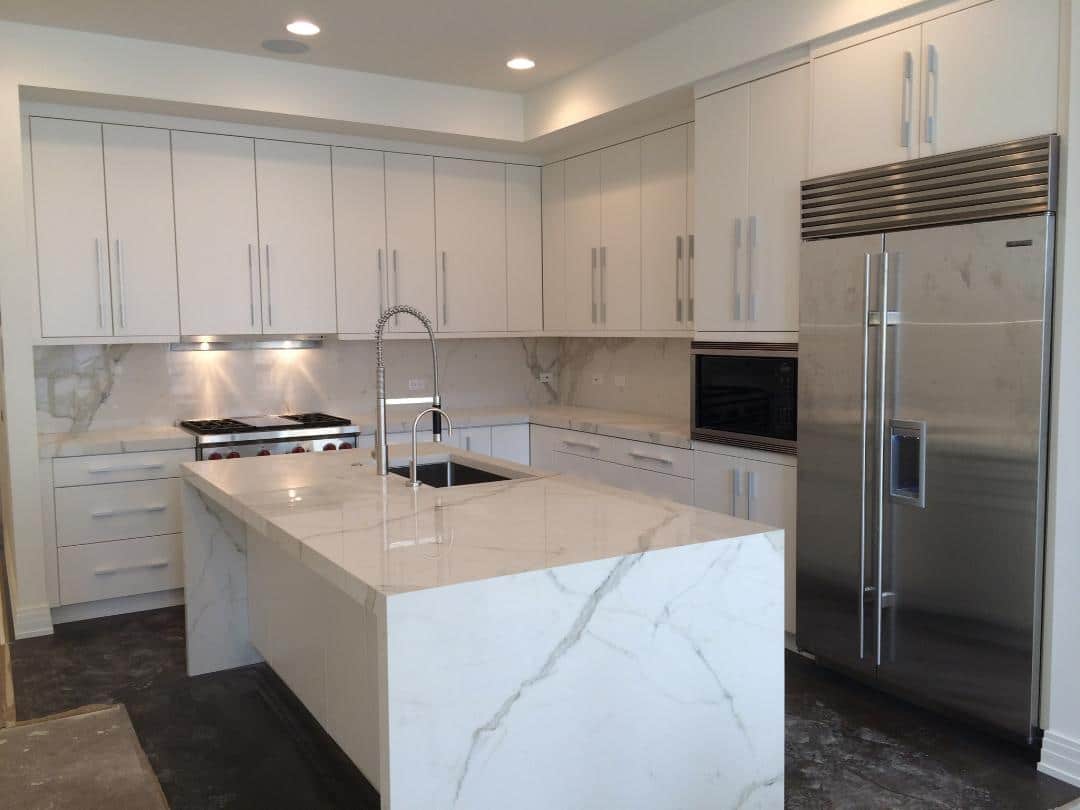
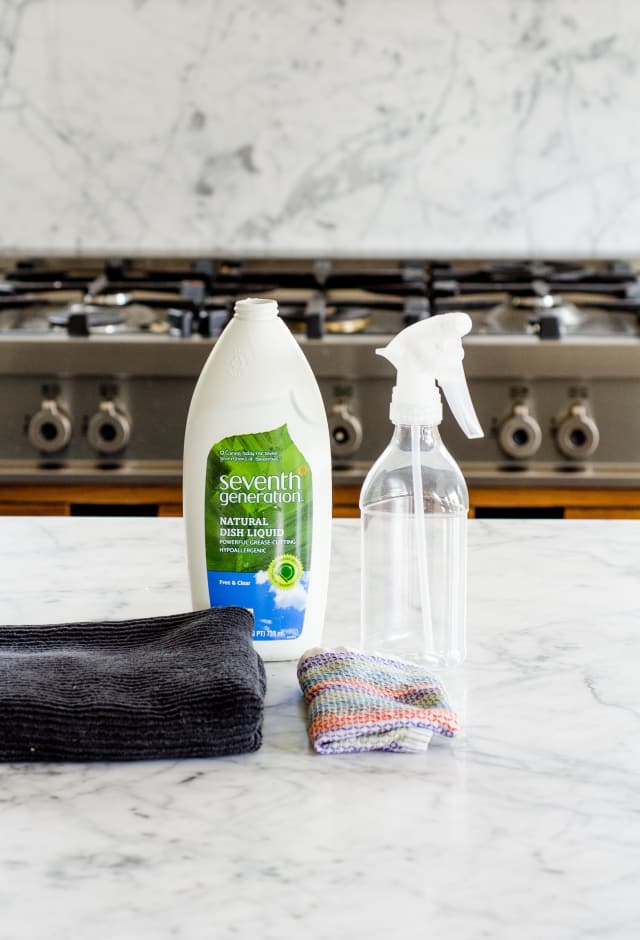


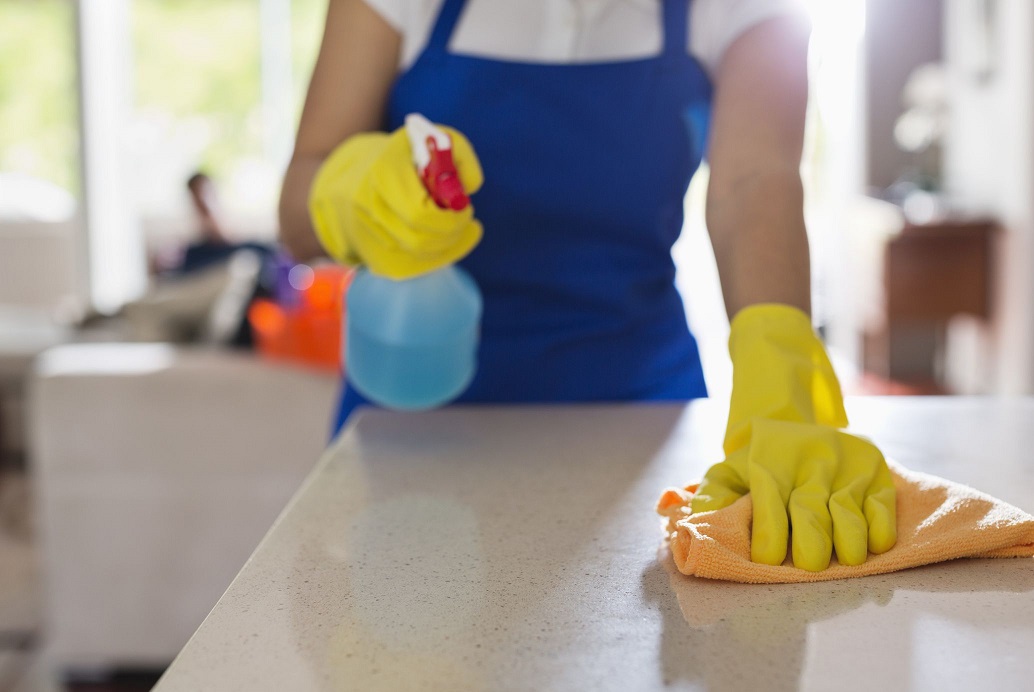
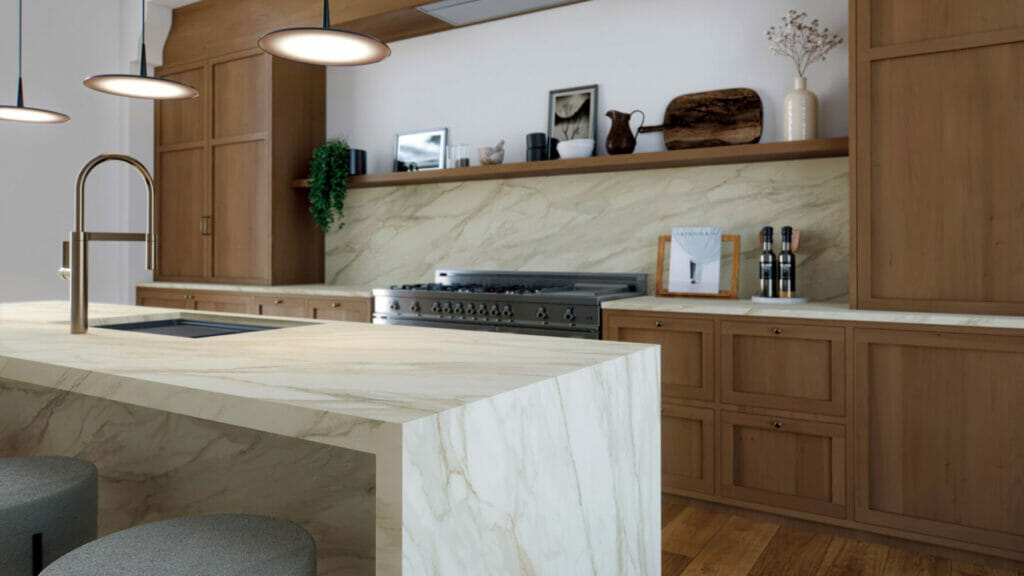
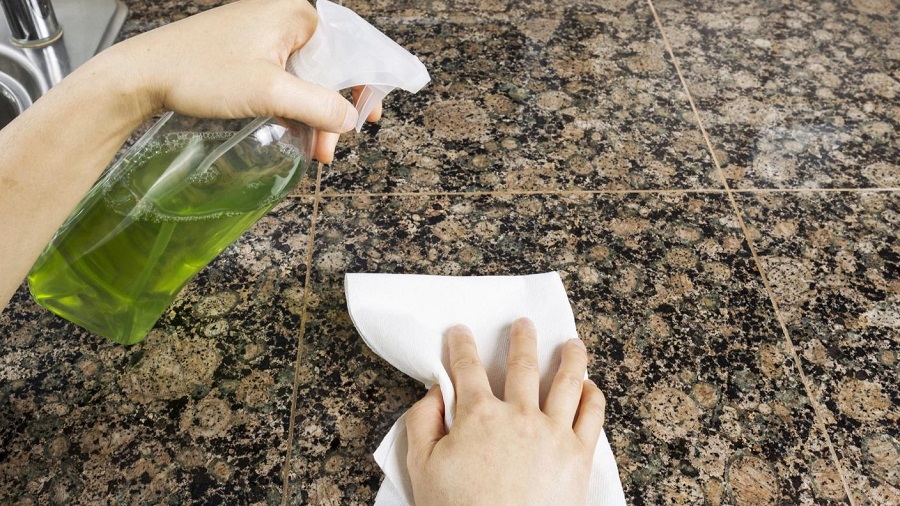
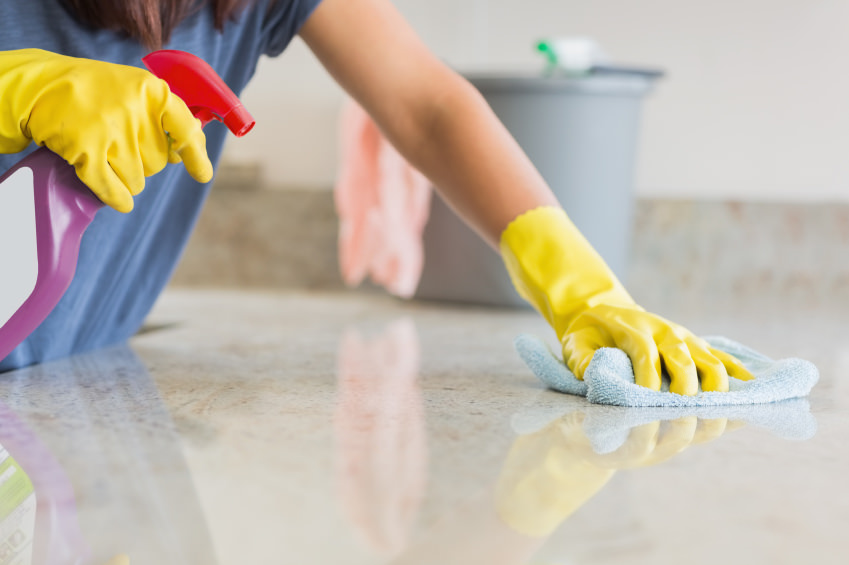
:max_bytes(150000):strip_icc()/marble-countertop-care-and-cleaning-1901060-01-160e1bc56fbd4e07bfc10420f26a953d.jpg)




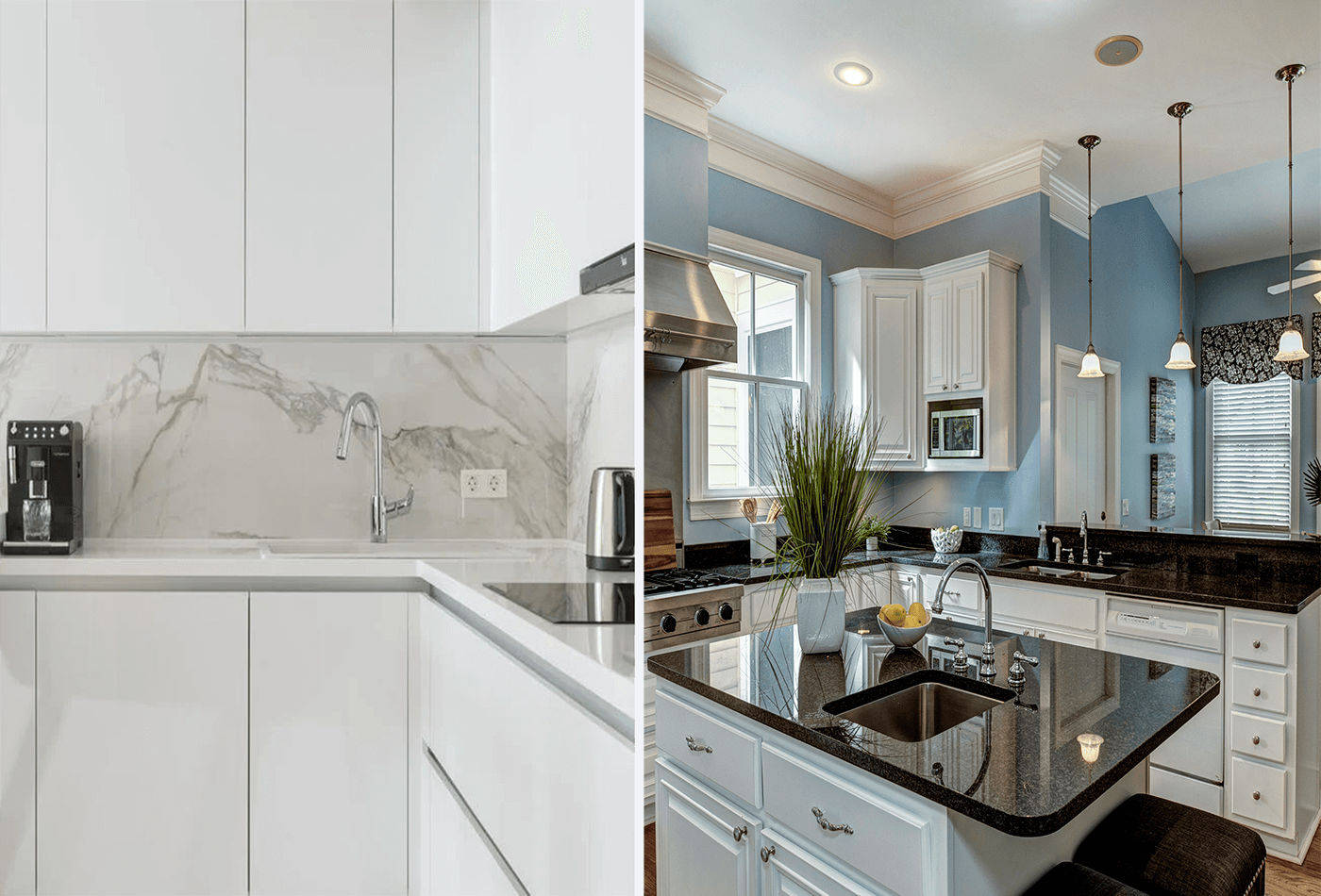

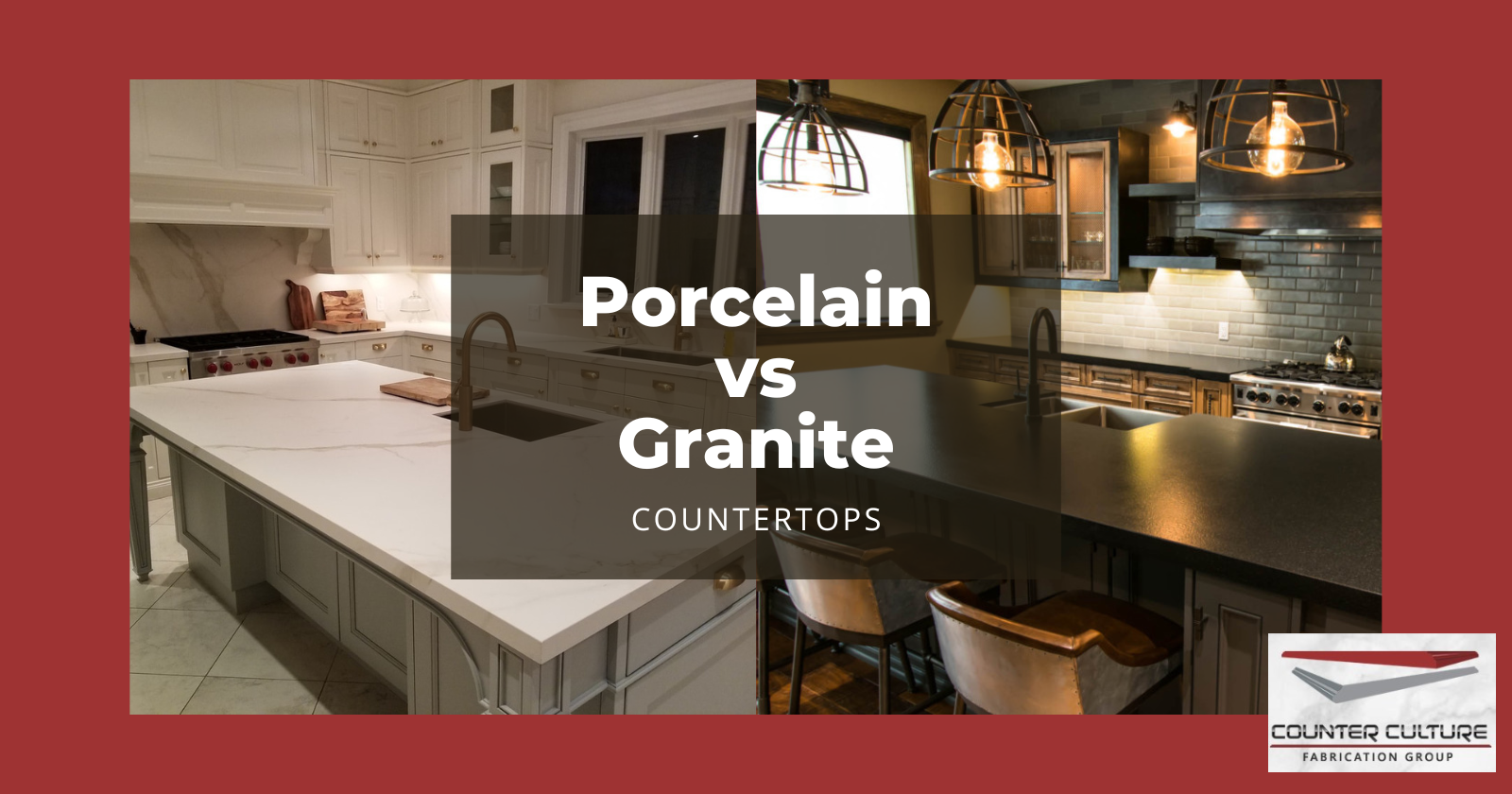


:max_bytes(150000):strip_icc()/quartz-vs-granite-countertops-1822078-v3-5ba95497c9e77c0050e2f0b6.jpg)
